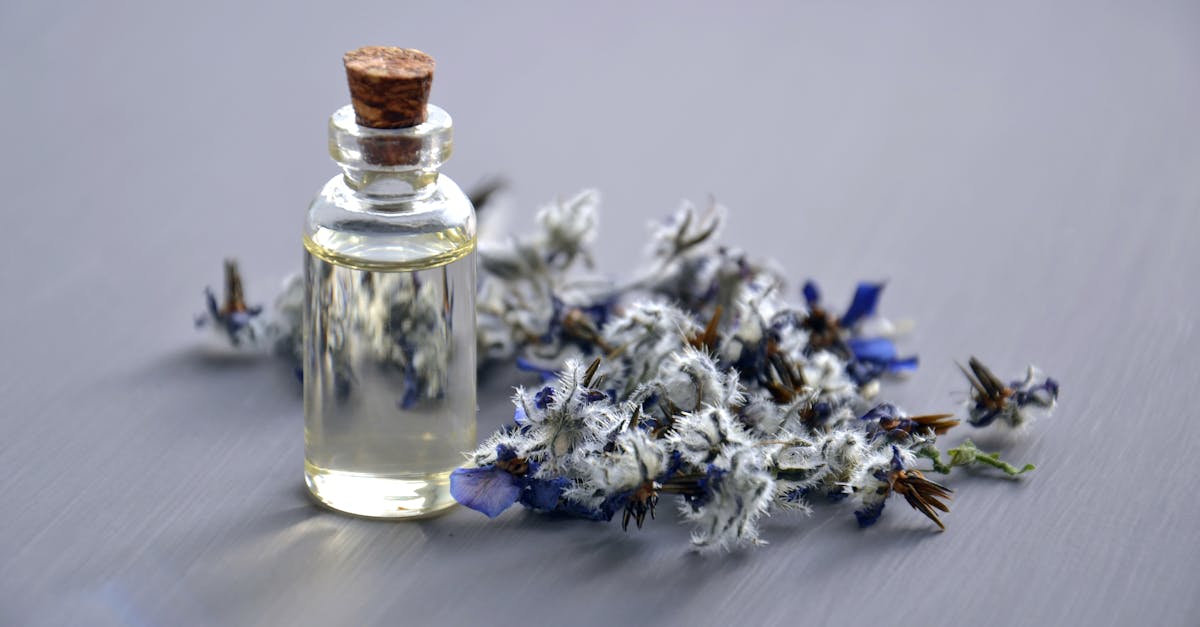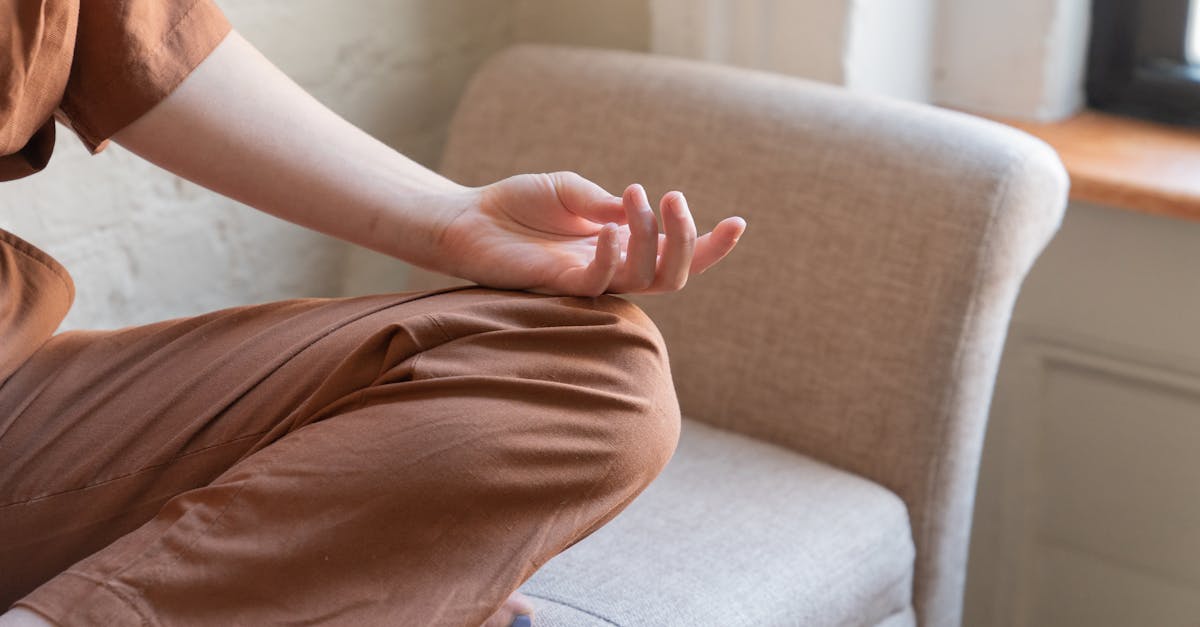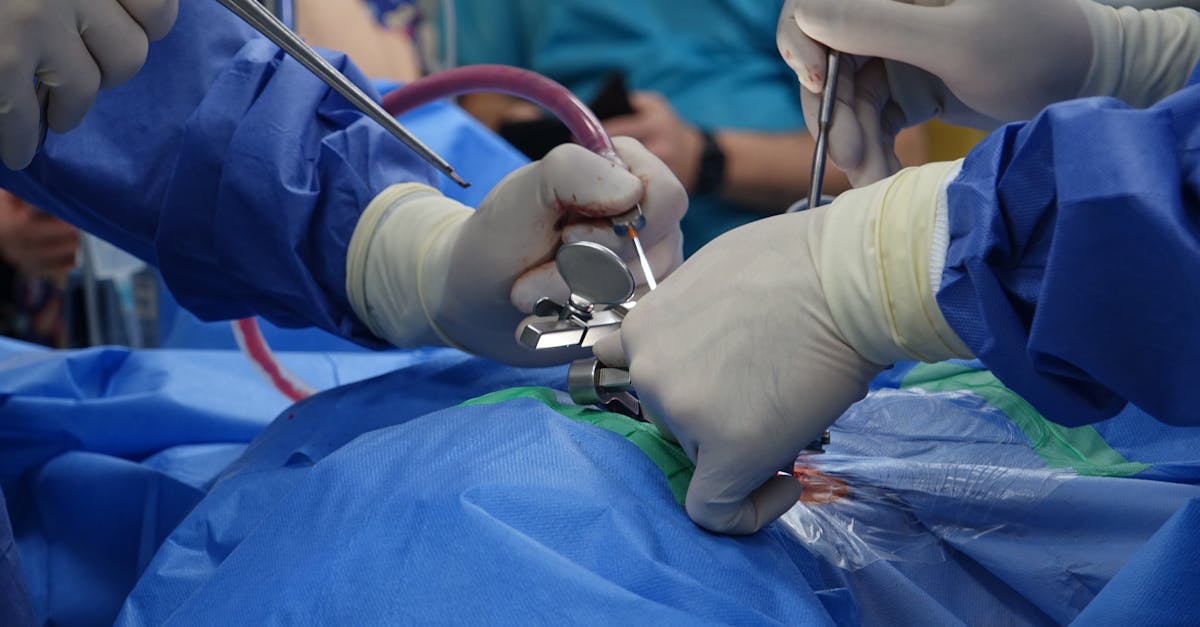In Short , Holistic Solutions for Headaches encompass innovative therapies such as Pulsating Therapy and gentle lifestyle tweaks designed to alleviate discomfort effectively. This approach provides a natural alternative for those suffering from chronic headaches, including tension headaches and migraines . Patients can expect benefits such as reduced pain, improved posture, and enhanced well-being. By focusing on neuromuscular health and natural balance , these methods enable the body to self-recalibrate effectively, promoting greater physical and emotional comfort. Accessible through various Pulse Align Clinics, this method integrates simple adjustments and holistic techniques, ensuring a supportive path to wellness.
Holistic solutions for headaches emphasize the integration of pulsating therapy and gentle lifestyle tweaks to effectively manage pain. This approach seeks to address the root causes of headaches rather than merely alleviating symptoms. Clients can benefit from posture correction , relaxation techniques , and neuromuscular recalibration , leading to a more balanced state of well-being. By embracing these natural methods, individuals are encouraged to take control of their health, ultimately transforming their daily experiences with headaches.
Welcome to Pulse Align, where we emphasize a gentle approach to enhance your overall well-being. Our innovative method focuses on restoring your body’s natural balance and posture through gentle, imperceptible pulses. By promoting optimal muscle tone symmetry, we help alleviate tension and discomfort, paving the way for enhanced comfort and functionality in your daily life.
Gentle Recalibration for Improved Comfort
At Pulse Align, our focus is not on diagnosing or treating conditions. Instead, we empower the body to recalibrate itself naturally. This gentle approach often leads to an improvement in comfort levels, as clients experience an increase in posture stability and symmetry. By creating an environment where natural processes can flourish, we support your journey towards achieving a more balanced and rejuvenated state.
Personalized Wellness Experiences
Every client at Pulse Align is treated like an individual, with a personalized experience tailored to their unique needs. Many clients share their positive experiences highlighting improvements in posture, tension relief, and overall wellness. Through our inviting and family-friendly atmosphere, we foster a sense of community where everyone can benefit from holistic approaches to well-being.
Join Us at Pulse Align
If you’re ready to explore how our innovative, non-invasive methods can enhance your wellness journey, we invite you to visit our website to learn more and find nearby locations in cities such as La Prairie, Mont-Royal, Terrebonne, and more. Remember, Pulse Align is here to complement your healthcare journey—our services support your well-being without replacing any existing medical care. Book a consultation today and experience the safe, family-friendly approach that we offer.
Pulsating Therapy: A non-invasive approach that encourages natural healing and relief from discomfort.Gentle Adjustments: Small lifestyle changes aimed at improving posture and alleviating tension.Mindfulness Techniques: Integrating relaxation practices that help manage stress and reduce headache frequency.Hydration Strategies: Ensuring adequate fluid intake to prevent dehydration, a common headache trigger.Core Strengthening: Engaging in exercises that stabilize the body and support overall posture.Aromatherapy: Utilizing essential oils that promote relaxation and offer immediate headache relief.Community Support: Connecting with others to share experiences and strategies for managing headaches.
Headaches can be debilitating, often disrupting daily life and overall well-being. However, adopting a holistic approach that includes pulsating therapy and gentle lifestyle adjustments can provide effective relief. This article explores how these techniques can target headache causes while promoting a balanced, health-oriented lifestyle.
Pulsating Therapy: A Revolutionary Approach
Pulsating therapy is an innovative method that combines gentle, controlled pulses to stimulate the body’s natural healing processes. By focusing on the areas of discomfort, this therapy encourages the body to recalibrate itself, promoting improved muscle tone and posture . This approach is particularly beneficial for those who experience tension headaches, as it effectively targets the underlying muscular imbalances contributing to discomfort.
Research has shown that this therapy enhances neuromuscular health by increasing blood flow and reducing muscle stiffness, subsequently alleviating pain. The gentle stimulation offered through pulsating therapy helps to diffuse tension around the neck and shoulders, areas often associated with headache development. Furthermore, it fosters a calm and relaxing environment, aiding in reducing stress levels which are known headache triggers.
How Pulsating Therapy Works
This therapy utilizes specialized devices that generate rhythmic, light pulses. These pulses interact with the body’s neuromuscular systems, promoting a state of relaxation and balance. Clients typically report feeling a gentle release of tension, enabling greater ease of movement and reduced pain. This holistic approach supports the body’s inherent ability to heal and recalibrate, making it a valuable addition to any headache relief regimen.
Gentle Lifestyle Tweaks for Headache Relief
In addition to pulsating therapy, implementing gentle lifestyle adjustments can play a crucial role in managing headaches effectively. Start by assessing your daily routine and identifying stressors that may contribute to tension and discomfort. Simple changes in your posture and ergonomic setups can significantly alleviate strain on your body. Ensure that your workspace is supportive of good posture, ergonomically aligning your computer screen and chair height to minimize neck and shoulder tension.
Staying well-hydrated is also paramount in preventing headaches. Dehydration is a common trigger, so aim to drink ample water throughout the day. Incorporating daily stretching and relaxation techniques, such as yoga or deep breathing exercises, can help release built-up tension, enhancing overall well-being.
Emphasizing a Balanced Diet
The foods we consume can significantly impact headache occurrence. Encourage a diet rich in fresh fruits, vegetables, whole grains, and lean proteins while avoiding common triggers such as processed foods, alcohol, and excess caffeine. Maintaining regular meal times can also assist in balancing your body’s energy levels, potentially preventing headaches from occurring due to fluctuating blood sugar levels.
Building a Supportive Community
Participating in community support groups focused on headache management can foster connection and shared experience among individuals facing similar challenges. Engaging with a community not only provides emotional support but also allows for the exchange of effective coping strategies. Finding a group dedicated to holistic health can deepen your understanding of alternative therapies and benefits, creating a network for shared knowledge and motivation in your wellness journey.
Prioritizing Sleep and Mindfulness
Not to be overlooked is the importance of quality sleep. Implementing a regular sleep routine can significantly enhance your body’s ability to recover and maintain balance. Furthermore, practicing mindfulness techniques, such as meditation or progressive muscle relaxation, can help reduce the overall stress levels that contribute to headaches and promote a stable, calm mental state.
Pulsating Therapy
Gentle Lifestyle Tweaks
Natural Balance: Promotes the body’s inherent ability to restore equilibrium.Posture Improvement: Simple adjustments that support alignment and well-being.
Muscle Relaxation: Encourages tension release through gentle stimulation.Mindful Practices: Incorporates meditation and deep breathing for stress reduction.
Body Awareness: Enhances understanding of physical sensations and responses.Hydration Focus: Emphasizes consistent water intake to promote overall wellness.
Gentle Movements: Utilizes rhythmic adjustments to foster a sense of calm.Healthy Nutrition: Encourages a balanced diet to support energy levels and vitality.
Holistic Integration: Works with the body’s natural systems to encourage harmony.Community Support: Engages with groups for sharing experiences and encouragement.
Neck and Shoulder Comfort: Alleviates tension through targeted techniques.Stretching Routines: Implements gentle stretches for enhanced flexibility and release.
Regulated Rhythms: Supports synchronization of body functions through gentle interventions.Emotional Balance: Promotes mental clarity and relaxation methods.
Personalized Approach: Tailors experience to individual comfort and needs.Consistency Matters: Encourages routine practices for sustained wellness.
Transformative Wellness Journeys with Pulse Align
Clients from various regions, including La Prairie and Mont-Royal , have shared remarkable stories of healing and rejuvenation thanks to the holistic solutions provided by Pulse Align. Many individuals have discovered how this innovative approach not only addresses their specific discomforts, but also supports the body’s natural ability to recalibrate and restore balance.
In Terrebonne , clients have highlighted their experiences with Pulsating Therapy , noting improvements in their overall wellness without relying solely on medications. They appreciate how the gentle lifestyle tweaks encouraged by the practitioners have paved the way for long-lasting relief from their chronic headaches. These techniques help detoxify the body and promote a more aligned state, enhancing the overall quality of their daily lives.
Residents of Châteauguay have expressed their gratitude for the supportive community fostered at Pulse Align. Testimonials emphasize how clients feel heard and empowered through collaborative approaches with their healthcare teams. They report feeling more in tune with their bodies, allowing them to engage in activities that were previously hindered by discomfort.
Additionally, clients visiting from Sainte-Marie and Chicoutimi have shared how the gentle lifestyle adjustments encouraged by the Pulse Align team have contributed to their journey toward holistic recovery. Many have reported the reduction of migraine triggers and enhanced energy levels simply by embracing practical coping strategies integrated into their routines.
In Saint-Jérôme and Deux-Montagnes , individuals are discovering the value of personalized wellness strategies that enable them to take charge of their health. The commitment to fostering an environment of relaxation and rejuvenation has resonated deeply, transforming ordinary routines into proactive steps toward better health.
For those in Panama City , Pulse Align provides opportunities to engage with these innovative approaches to wellness and body function, showing clients first-hand how natural healing can make a difference in their lives. The power of community support is palpable, as everyone shares similar journeys toward greater peace and comfort.
If you are looking to transform your wellness journey, explore how Pulse Align’s services can assist you by visiting Our Clinics . The compassionate team at Pulse Align works alongside your healthcare providers, providing invaluable support for both clients and their families on their path to holistic healing.
Dr. Sylvain Desforges has established himself as a prominent figure in the world of holistic healthcare, with specialization in osteopathy, naturopathy, and manual medicine. As the founding president of TAGMED clinics and the ACMA association, he has dedicated his career to healthcare innovation and the advancement of techniques aimed at chronic pain management. His work integrates traditional healing methods with modern scientific principles to create comprehensive treatment plans tailored to the individual needs of his patients.
Within TAGMED clinics, Dr. Desforges employs a foundational belief that effective healthcare transcends mere symptom relief. He directly engages with patients to understand their specific pain patterns and concerns, discussing their unique experiences to develop personalized strategies. His gentle approach allows patients to feel seen and heard, thereby fostering a trustful environment essential for holistic healing.
One of the key methods Dr. Desforges employs is pulsating therapy, which utilizes gentle, rhythmic impulses aimed at promoting natural body healing. This innovative treatment technique encourages the body’s inherent capabilities to recalibrate, creating a balanced state that can significantly reduce the frequency and intensity of headaches. This method is especially beneficial for those suffering from chronic headaches, as it not only addresses the pain but also aims to restore the balance within the musculoskeletal system.
In conjunction with pulsating therapy, Dr. Desforges emphasizes the importance of gentle lifestyle tweaks. By introducing small, easily integrable habits into daily routines, patients can enhance their overall wellness. These adjustments may include ergonomic changes, posture correction, hydration practices, and strategic relaxation exercises. They collectively create a holistic approach that nurtures sustained pain relief while promoting a healthier, more vibrant lifestyle.
Dr. Desforges’s commitment to integrating advanced technologies complements his manual techniques. He specializes in modalities such as spinal decompression, laser therapy, and shockwave therapy, each playing a vital role in addressing the underlying factors contributing to chronic headaches. Through his expertise, patients at TAGMED clinics experience personalized treatment options that cater to their specific needs, marking significant improvements in both their physical and emotional well-being.
Moreover, Dr. Desforges also heads the ACMA association, which aims to elevate the standards of care in holistic medicine. By fostering collaboration between practitioners, researchers, and patients, the association seeks to promote best practices in healthcare. This collective effort reinforces the importance of evidence-based methods, ensuring that patients receive the highest standard of care grounded in scientific research and empirical evidence.
The combination of Dr. Desforges’s extensive knowledge, innovative treatments, and sincere dedication to patient care places TAGMED clinics at the forefront of holistic headache management. His philosophy centers on empowering patients to take control of their health through informed decisions, supportive guidance, and effective therapies. As patients embark on their wellness journey with Dr. Desforges, they discover a profound and transformative approach to managing their chronic headaches and achieving an enhanced quality of life.
Understanding TAGMED’s Neurovertebral Decompression Therapy
Mechanism of Action
TAGMED’s neurovertebral decompression therapy operates by applying a controlled and progressive traction force to the spine. This innovative approach works by increasing the space between the vertebrae, thereby alleviating the pressure on intervertebral discs and nerve roots . By doing so, it allows for better fluid circulation in the targeted area, which is crucial for reducing inflammation and managing pain. The mechanism involves a gentle stretching of the spinal structures, which helps restore the natural alignment and functional capacity of the spine, ultimately facilitating a more comfortable and mobile lifestyle.
Specific Benefits
This non-invasive method effectively addresses chronic pain and the symptoms associated with conditions such as herniated discs , bulging discs , and spinal stenosis . By significantly reducing the pressure on neural structures and optimizing the circulation of fluids around the discs, this therapy encourages a faster recovery process. Patients often report improved mobility and overall quality of life after undergoing treatment. The reduction in symptoms such as pain and discomfort allows individuals to regain their independence and actively participate in daily activities that align with their wellness goals.
Comparison with Other Treatments
When compared to other common treatment methods for managing spinal-related issues, such as pain medications, corticosteroid injections, surgery, or traditional physiotherapy, TAGMED’s neurovertebral decompression therapy offers unique advantages. Primarily, it is a non-invasive solution , which minimizes the risks related to surgical procedures and the side effects associated with pharmacological treatments. Many patients find that they experience a quicker recovery with neurovertebral decompression than with other therapies, as it focuses on addressing the underlying issues rather than merely masking symptoms.
Case Studies or Testimonials
Numerous patients have shared their transformative experiences after receiving TAGMED’s neurovertebral decompression therapy. For example, one patient reported a significant and lasting reduction in pain levels following several sessions, allowing them to return to their daily activities much sooner than anticipated. Another patient highlighted their diminished reliance on pain medications, emphasizing how the therapy enabled them to manage their pain more effectively and regain a sense of normalcy in their lives. These testimonials not only illustrate the benefits of this innovative treatment method but also highlight the overall improvement in the patients’ quality of life.
In an era where quick fixes have become the norm, the key to long-lasting headache relief often lies within holistic solutions. By combining pulsating therapy with gentle lifestyle tweaks, individuals can take a more proactive and natural approach to managing their headaches. These integrated methods not only address the symptoms but also target the underlying causes, leading to a deeper sense of well-being.
Pulsating therapy, a cutting-edge technique, utilizes gentle pulses to stimulate the body’s natural healing mechanisms. This non-invasive method aids in reducing muscle tension, improving circulation, and relieving discomfort. As clients experience the benefits of this therapy, they often notice enhanced energy levels and overall vitality. It stands as a testament to the power of natural healing practices, enabling individuals to reclaim control over their health.
Alongside pulsating therapy, simple lifestyle adjustments can significantly enhance headache management. Incorporating mindfulness practices, improving hydration, and adjusting daily habits can mitigate common headache triggers. These adjustments not only foster relaxation but also promote a more balanced body, allowing individuals to navigate their day without the fear of impending discomfort.
The importance of community support cannot be overstated in this holistic journey. Engaging with others on a similar path can offer encouragement and shared strategies for coping with headaches. The bonds formed within such communities can provide a sense of belonging and understanding, essential for navigating the challenges of chronic pain.
Together, the fusion of pulsating therapy and lifestyle modifications represents a transformative approach to headache relief. This holistic framework empowers individuals to cultivate a healthier lifestyle while alleviating the symptoms associated with headaches. It emphasizes the notion that wellness is an ongoing journey, filled with choices that lead to a better, pain-free existence.
Do you suffer from a chronic condition that responds little or not at all to conservative treatments?
Pulse Align offers a unique, non-invasive method designed to help restore the body’s natural balance and posture through gentle, imperceptible pulses. This innovative approach promotes the body’s natural ability to self-calibrate, potentially leading to a reduction in muscle and joint tension and providing an opportunity to enhance overall comfort. By focusing on the body’s inherent capabilities, Pulse Align presents an alternative method for those seeking holistic solutions.
At Pulse Align, the emphasis is not on addressing specific discomforts or conditions directly. Instead, our focus is on facilitating the body’s natural processes so that it can recalibrate itself and achieve a state of improved well-being. Many clients report significant improvements in comfort and posture, indicative of the remarkable transformations that can result from this gentle approach.
Our individualized approach sets Pulse Align apart. Clients frequently share their positive experiences related to enhanced comfort and improved posture after integrating our services into their lives. Many individuals have expressed how the gentle stimulation techniques have contributed to notable enhancements in overall wellness, creating a more balanced, harmonious state in their daily routines.
If you are interested in exploring how Pulse Align can support your wellness journey, we invite you to visit our website. Here, you’ll find information on the various locations, including La Prairie, Mont-Royal, Terrebonne, and many more, where you and your family can experience our family-friendly services. Remember, at Pulse Align, we complement your existing healthcare services, ensuring that your wellness journey is holistic and well-rounded. Book a consultation today to discover how we can help you embark on a path towards natural balance and well-being. To learn more about our services and book an appointment, visit our website: Pulse Align .
Frequently Asked Questions
Headache and Migraine
How long does a migraine last?
An untreated migraine can last from a few hours to three days.
Can migraines occur at night?
Yes, some people wake up with migraines, sometimes linked to sleep disorders.
Does bright light trigger migraines?
Yes, light sensitivity is common, and bright light can worsen a migraine attack.
What about ocular migraines?
Migraines with aura can cause visual disturbances (flashing lights) before pain onset.
Can migraines be mistaken for other conditions?
Yes, some migraines mimic stroke or sinusitis symptoms. A medical diagnosis may be needed.
Do weather changes trigger migraines?
Yes, some people are sensitive to pressure, humidity, or temperature shifts.
Do sunglasses help during a migraine?
Yes, they reduce light sensitivity and partially alleviate symptoms.
Are blue-light filtering screens useful?
They reduce eye strain, potentially lowering headache risk.
Can lack of sleep cause migraines?
Yes, insufficient or poor-quality sleep is a common migraine trigger.
Can migraines disappear with age?
In some individuals, migraines become less frequent and less intense over time.
Simon Bertrand is dedicated to shining a light on the hidden struggles of chronic headaches. As a Headache Awareness Advocate at Pulse Align, he combines compassionate storytelling with cutting-edge research to bring clarity, comfort, and hope to those affected. Simon’s mission is to empower readers with knowledge, break through stigma, and foster a supportive community where every voice is heard. When he’s not crafting insightful articles, Simon can be found exploring the latest wellness trends, sharing practical coping strategies, or simply lending a listening ear to those in need. His heartfelt approach and unwavering commitment to awareness make him a trusted ally for anyone navigating life with headaches.
Medical Disclaimer
The information and advice provided on this site do not replace the advice, diagnosis, or treatment of a healthcare professional. Please note that the author of this article is neither a doctor nor a specialist in a medical specialty as defined by the Collège des médecins du Québec. Manual medicine, functional medicine, and sports medicine as described on this site exclude any medical treatment or diagnosis made by a doctor or medical specialist. Always consult your doctor for any medical questions. For more details, please read our complete Legal Notice .
References No parsed citations found. Full shortcode output:
722490
MDAVM6MK
1
apa
20
default
5877
https://pulsealigncharlesbourg.com/wp-content/plugins/zotpress/
%7B%22status%22%3A%22success%22%2C%22updateneeded%22%3Afalse%2C%22instance%22%3Afalse%2C%22meta%22%3A%7B%22request_last%22%3A0%2C%22request_next%22%3A0%2C%22used_cache%22%3Atrue%7D%2C%22data%22%3A%5B%7B%22key%22%3A%22474E5C2I%22%2C%22library%22%3A%7B%22id%22%3A722490%7D%2C%22meta%22%3A%7B%22creatorSummary%22%3A%22Al-Khazali%20et%20al.%22%2C%22parsedDate%22%3A%222024%22%2C%22numChildren%22%3A1%7D%2C%22bib%22%3A%22%26lt%3Bdiv%20class%3D%26quot%3Bcsl-bib-body%26quot%3B%20style%3D%26quot%3Bline-height%3A%202%3B%20padding-left%3A%201em%3B%20text-indent%3A-1em%3B%26quot%3B%26gt%3B%5Cn%20%20%26lt%3Bdiv%20class%3D%26quot%3Bcsl-entry%26quot%3B%26gt%3BAl-Khazali%2C%20H.%20M.%2C%20Al-Sayegh%2C%20Z.%2C%20Younis%2C%20S.%2C%20Christensen%2C%20R.%20H.%2C%20Ashina%2C%20M.%2C%20Schytz%2C%20H.%20W.%2C%20%26amp%3B%20Ashina%2C%20S.%20%282024%29.%20Systematic%20review%20and%20meta-analysis%20of%20Neck%20Disability%20Index%20and%20Numeric%20Pain%20Rating%20Scale%20in%20patients%20with%20migraine%20and%20tension-type%20headache.%20%26lt%3Bi%26gt%3BCephalalgia%26lt%3B%5C%2Fi%26gt%3B%2C%20%26lt%3Bi%26gt%3B44%26lt%3B%5C%2Fi%26gt%3B%288%29%2C%2003331024241274266.%20%26lt%3Ba%20class%3D%26%23039%3Bzp-DOIURL%26%23039%3B%20href%3D%26%23039%3Bhttps%3A%5C%2F%5C%2Fdoi.org%5C%2F10.1177%5C%2F03331024241274266%26%23039%3B%26gt%3Bhttps%3A%5C%2F%5C%2Fdoi.org%5C%2F10.1177%5C%2F03331024241274266%26lt%3B%5C%2Fa%26gt%3B%26lt%3B%5C%2Fdiv%26gt%3B%5Cn%26lt%3B%5C%2Fdiv%26gt%3B%22%2C%22data%22%3A%7B%22itemType%22%3A%22journalArticle%22%2C%22title%22%3A%22Systematic%20review%20and%20meta-analysis%20of%20Neck%20Disability%20Index%20and%20Numeric%20Pain%20Rating%20Scale%20in%20patients%20with%20migraine%20and%20tension-type%20headache%22%2C%22creators%22%3A%5B%7B%22creatorType%22%3A%22author%22%2C%22firstName%22%3A%22Haidar%20M.%22%2C%22lastName%22%3A%22Al-Khazali%22%7D%2C%7B%22creatorType%22%3A%22author%22%2C%22firstName%22%3A%22Zainab%22%2C%22lastName%22%3A%22Al-Sayegh%22%7D%2C%7B%22creatorType%22%3A%22author%22%2C%22firstName%22%3A%22Samaira%22%2C%22lastName%22%3A%22Younis%22%7D%2C%7B%22creatorType%22%3A%22author%22%2C%22firstName%22%3A%22Rune%20H.%22%2C%22lastName%22%3A%22Christensen%22%7D%2C%7B%22creatorType%22%3A%22author%22%2C%22firstName%22%3A%22Messoud%22%2C%22lastName%22%3A%22Ashina%22%7D%2C%7B%22creatorType%22%3A%22author%22%2C%22firstName%22%3A%22Henrik%20W.%22%2C%22lastName%22%3A%22Schytz%22%7D%2C%7B%22creatorType%22%3A%22author%22%2C%22firstName%22%3A%22Sait%22%2C%22lastName%22%3A%22Ashina%22%7D%5D%2C%22abstractNote%22%3A%22Background%5Cn%20%20%20%20%20%20%20%20%20%20%20%20%20%20The%20present%20study%20aimed%20to%20assess%20the%20burden%20of%20neck%20pain%20in%20adults%20with%20migraine%20and%20tension-type%20headache%20%28TTH%29%2C%20utilizing%20the%20Neck%20Disability%20Index%20%28NDI%29%20and%20Numeric%20Pain%20Rating%20Scale%20%28NPRS%29.%5Cn%20%20%20%20%20%20%20%20%20%20%20%20%5Cn%20%20%20%20%20%20%20%20%20%20%20%20%5Cn%20%20%20%20%20%20%20%20%20%20%20%20%20%20Methods%5Cn%20%20%20%20%20%20%20%20%20%20%20%20%20%20%5Cn%20%20%20%20%20%20%20%20%20%20%20%20%20%20%20%20A%20systematic%20literature%20search%20was%20conducted%20on%20PubMed%20and%20Embase%20to%20identify%20observational%20studies%20assessing%20NDI%20and%20NPRS%20in%20populations%20with%20migraine%20or%20TTH.%20The%20screening%20of%20articles%20was%20independently%20performed%20by%20two%20investigators%20%28HMA%20and%20ZA%29.%20Pooled%20mean%20estimates%20were%20calculated%20through%20random-effects%20meta-analysis.%20The%20I%5Cn%20%20%20%20%20%20%20%20%20%20%20%20%20%20%20%202%5Cn%20%20%20%20%20%20%20%20%20%20%20%20%20%20%20%20statistic%20assessed%20between-study%20heterogeneity%2C%20and%20meta-regression%20further%20explored%20heterogeneity%20factors.%5Cn%20%20%20%20%20%20%20%20%20%20%20%20%20%20%5Cn%20%20%20%20%20%20%20%20%20%20%20%20%5Cn%20%20%20%20%20%20%20%20%20%20%20%20%5Cn%20%20%20%20%20%20%20%20%20%20%20%20%20%20Results%5Cn%20%20%20%20%20%20%20%20%20%20%20%20%20%20%5Cn%20%20%20%20%20%20%20%20%20%20%20%20%20%20%20%20Thirty-three%20clinic-based%20studies%20met%20the%20inclusion%20criteria.%20For%20participants%20with%20migraine%2C%20the%20pooled%20mean%20NDI%20score%20was%2016.2%20%2895%25%20confidence%20interval%20%28CI%29%20%3D%2013.2%5Cu201319.2%2C%20I%5Cn%20%20%20%20%20%20%20%20%20%20%20%20%20%20%20%202%5Cu2009%5Cn%20%20%20%20%20%20%20%20%20%20%20%20%20%20%20%20%3D%5Cu200999%25%29.%20Additionally%2C%20the%20mean%20NDI%20was%205.5%20%2895%25%20CI%20%3D%204.11%5Cu20136.8%2C%20p%5Cu2009%26lt%3B%5Cu20090.001%29%20scores%20higher%20in%20participants%20with%20chronic%20compared%20to%20episodic%20migraine.%20The%20pooled%20mean%20NDI%20score%20for%20participants%20with%20TTH%20was%2013.7%20%2895%25%20CI%20%3D%204.9%5Cu201322.4%2C%20I%5Cn%20%20%20%20%20%20%20%20%20%20%20%20%20%20%20%202%5Cu2009%5Cn%20%20%20%20%20%20%20%20%20%20%20%20%20%20%20%20%3D%5Cu200999%25%29.%20In%20addition%2C%20the%20meta-analysis%20revealed%20a%20mean%20NPRS%20score%20of%205.7%20%2895%25%20CI%20%3D%205.1%5Cu20136.2%2C%20I%5Cn%20%20%20%20%20%20%20%20%20%20%20%20%20%20%20%202%5Cn%20%20%20%20%20%20%20%20%20%20%20%20%20%20%20%20%5Cu2009%3D%5Cu200995%25%29%20across%20all%20participants%20with%20migraine.%5Cn%20%20%20%20%20%20%20%20%20%20%20%20%20%20%5Cn%20%20%20%20%20%20%20%20%20%20%20%20%5Cn%20%20%20%20%20%20%20%20%20%20%20%20%5Cn%20%20%20%20%20%20%20%20%20%20%20%20%20%20Conclusions%5Cn%20%20%20%20%20%20%20%20%20%20%20%20%20%20This%20systematic%20review%20and%20meta-analysis%20shows%20a%20greater%20degree%20of%20neck%20pain-related%20disability%20in%20migraine%20compared%20to%20TTH.%20Nevertheless%2C%20the%20generalizability%20of%20these%20findings%20is%20constrained%20by%20methodological%20variations%20identified%20in%20the%20current%20literature.%22%2C%22date%22%3A%2208%5C%2F2024%22%2C%22language%22%3A%22en%22%2C%22DOI%22%3A%2210.1177%5C%2F03331024241274266%22%2C%22ISSN%22%3A%220333-1024%2C%201468-2982%22%2C%22url%22%3A%22https%3A%5C%2F%5C%2Fjournals.sagepub.com%5C%2Fdoi%5C%2F10.1177%5C%2F03331024241274266%22%2C%22collections%22%3A%5B%22MDAVM6MK%22%5D%2C%22dateModified%22%3A%222024-12-16T17%3A38%3A46Z%22%7D%7D%2C%7B%22key%22%3A%22UL3PWZM8%22%2C%22library%22%3A%7B%22id%22%3A722490%7D%2C%22meta%22%3A%7B%22creatorSummary%22%3A%22Fern%5Cu00e1ndez%5Cu2010de%5Cu2010las%5Cu2010Pe%5Cu00f1as%20et%20al.%22%2C%22parsedDate%22%3A%222007%22%2C%22numChildren%22%3A1%7D%2C%22bib%22%3A%22%26lt%3Bdiv%20class%3D%26quot%3Bcsl-bib-body%26quot%3B%20style%3D%26quot%3Bline-height%3A%202%3B%20padding-left%3A%201em%3B%20text-indent%3A-1em%3B%26quot%3B%26gt%3B%5Cn%20%20%26lt%3Bdiv%20class%3D%26quot%3Bcsl-entry%26quot%3B%26gt%3BFern%26%23xE1%3Bndez%26%23x2010%3Bde%26%23x2010%3Blas%26%23x2010%3BPe%26%23xF1%3Bas%2C%20C.%2C%20Cuadrado%2C%20M.%20L.%2C%20%26amp%3B%20Pareja%2C%20J.%20A.%20%282007%29.%20Myofascial%20Trigger%20Points%2C%20Neck%20Mobility%2C%20and%20Forward%20Head%20Posture%20in%20Episodic%20Tension%26%23x2010%3BType%20Headache.%20%26lt%3Bi%26gt%3BHeadache%3A%20The%20Journal%20of%20Head%20and%20Face%20Pain%26lt%3B%5C%2Fi%26gt%3B%2C%20%26lt%3Bi%26gt%3B47%26lt%3B%5C%2Fi%26gt%3B%285%29%2C%20662%26%23x2013%3B672.%20%26lt%3Ba%20class%3D%26%23039%3Bzp-DOIURL%26%23039%3B%20href%3D%26%23039%3Bhttps%3A%5C%2F%5C%2Fdoi.org%5C%2F10.1111%5C%2Fj.1526-4610.2006.00632.x%26%23039%3B%26gt%3Bhttps%3A%5C%2F%5C%2Fdoi.org%5C%2F10.1111%5C%2Fj.1526-4610.2006.00632.x%26lt%3B%5C%2Fa%26gt%3B%26lt%3B%5C%2Fdiv%26gt%3B%5Cn%26lt%3B%5C%2Fdiv%26gt%3B%22%2C%22data%22%3A%7B%22itemType%22%3A%22journalArticle%22%2C%22title%22%3A%22Myofascial%20Trigger%20Points%2C%20Neck%20Mobility%2C%20and%20Forward%20Head%20Posture%20in%20Episodic%20Tension%5Cu2010Type%20Headache%22%2C%22creators%22%3A%5B%7B%22creatorType%22%3A%22author%22%2C%22firstName%22%3A%22C%5Cu00e9sar%22%2C%22lastName%22%3A%22Fern%5Cu00e1ndez%5Cu2010de%5Cu2010las%5Cu2010Pe%5Cu00f1as%22%7D%2C%7B%22creatorType%22%3A%22author%22%2C%22firstName%22%3A%22Maria%20L.%22%2C%22lastName%22%3A%22Cuadrado%22%7D%2C%7B%22creatorType%22%3A%22author%22%2C%22firstName%22%3A%22Juan%20A.%22%2C%22lastName%22%3A%22Pareja%22%7D%5D%2C%22abstractNote%22%3A%22Objective.%5Cu2014To%20assess%20the%20differences%20in%20the%20presence%20of%20trigger%20points%20%28TrPs%29%20in%20head%20and%20neck%20muscles%2C%20forward%20head%20posture%20%28FHP%29%20and%20neck%20mobility%20between%20episodic%20tension%5Cu2010type%20headache%20%28ETTH%29%20subjects%20and%20healthy%20controls.%20In%20addition%2C%20we%20assess%20the%20relationship%20between%20these%20muscle%20TrPs%2C%20FHP%2C%20neck%20mobility%2C%20and%20several%20clinical%20variables%20concerning%20the%20intensity%20and%20the%20temporal%20profile%20of%20headache.%5Cn%20%20%20%20%20%20%20%20%20%20%20%20Background.%5Cu2014TTH%20is%20a%20headache%20in%20which%20musculoskeletal%20disorders%20of%20the%20craniocervical%20region%20might%20play%20an%20important%20role%20in%20its%20pathogenesis.%5Cn%20%20%20%20%20%20%20%20%20%20%20%20Design.%5Cu2014A%20blinded%2C%20controlled%20pilot%20study.%5Cn%20%20%20%20%20%20%20%20%20%20%20%20Methods.%5Cu2014Fifteen%20ETTH%20subjects%20and%2015%20matched%20controls%20without%20headache%20were%20studied.%20TrPs%20in%20both%20upper%20trapezius%2C%20both%20sternocleidomastoids%2C%20and%20both%20temporalis%20muscles%20were%20identified%20according%20to%20Simons%20and%20Gerwin%20diagnostic%20criteria%20%28tenderness%20in%20a%20hypersensible%20spot%20within%20a%20palpable%20taut%20band%2C%20local%20twitch%20response%20elicited%20by%20snapping%20palpation%2C%20and%20elicited%20referred%20pain%20with%20palpation%29.%20Side%5Cu2010view%20pictures%20of%20each%20subject%20were%20taken%20in%20both%20sitting%20and%20standing%20positions%2C%20in%20order%20to%20assess%20FHP%20by%20measuring%20the%20craniovertebral%20angle.%20A%20cervical%20goniometer%20was%20employed%20to%20measure%20neck%20mobility.%20All%20measures%20were%20taken%20by%20a%20blinded%20assessor.%20A%20headache%20diary%20was%20kept%20for%204%20weeks%20in%20order%20to%20assess%20headache%20intensity%2C%20frequency%2C%20and%20duration.%5Cn%20%20%20%20%20%20%20%20%20%20%20%20%5Cn%20%20%20%20%20%20%20%20%20%20%20%20%20%20Results.%5Cu2014The%20mean%20number%20of%20TrPs%20for%20each%20ETTH%20subject%20was%203.7%20%28SD%3A%201.3%29%2C%20of%20which%201.9%20%28SD%3A%200.9%29%20were%20active%2C%20and%201.8%20%28SD%3A%200.9%29%20were%20latent.%20Control%20subjects%20only%20had%20latent%20TrPs%20%28mean%3A%201.5%3B%20SD%3A%201%29.%20TrP%20occurrence%20between%20the%202%20groups%20was%20significantly%20different%20for%20active%20TrPs%20%28%5Cn%20%20%20%20%20%20%20%20%20%20%20%20%20%20P%5Cn%20%20%20%20%20%20%20%20%20%20%20%20%20%20%26lt%3B%20.001%29%2C%20but%20not%20for%20latent%20TrPs%20%28%5Cn%20%20%20%20%20%20%20%20%20%20%20%20%20%20P%5Cn%20%20%20%20%20%20%20%20%20%20%20%20%20%20%26gt%3B%20.05%29.%20Differences%20in%20the%20distribution%20of%20TrPs%20were%20significant%20for%20the%20right%20upper%20trapezius%20muscles%20%28%5Cn%20%20%20%20%20%20%20%20%20%20%20%20%20%20P%5Cn%20%20%20%20%20%20%20%20%20%20%20%20%20%20%3D%20.04%29%2C%20the%20left%20sternocleidomastoid%20%28%5Cn%20%20%20%20%20%20%20%20%20%20%20%20%20%20P%5Cn%20%20%20%20%20%20%20%20%20%20%20%20%20%20%3D%20.03%29%2C%20and%20both%20temporalis%20muscles%20%28%5Cn%20%20%20%20%20%20%20%20%20%20%20%20%20%20P%5Cn%20%20%20%20%20%20%20%20%20%20%20%20%20%20%26lt%3B%20.001%29.%20Within%20the%20ETTH%20group%2C%20headache%20intensity%2C%20frequency%2C%20and%20duration%20outcomes%20did%20not%20differ%20depending%20on%20TrP%20activity%2C%20whether%20the%20TrP%20was%20active%20or%20latent.%20The%20craniovertebral%20angle%20was%20smaller%2C%20ie%2C%20there%20was%20a%20greater%20FHP%2C%20in%20ETTH%20patients%20than%20in%20healthy%20controls%20for%20both%20sitting%20and%20standing%20positions%20%28%5Cn%20%20%20%20%20%20%20%20%20%20%20%20%20%20P%5Cn%20%20%20%20%20%20%20%20%20%20%20%20%20%20%26lt%3B%20.05%29.%20ETTH%20subjects%20with%20active%20TrPs%20in%20the%20analyzed%20muscles%20had%20a%20greater%20FHP%20than%20those%20with%20latent%20TrPs%20in%20both%20sitting%20and%20standing%20positions%2C%20though%20differences%20were%20only%20significant%20for%20certain%20muscles.%20Finally%2C%20ETTH%20patients%20also%20showed%20lesser%20neck%20mobility%20than%20healthy%20controls%20in%20the%20total%20range%20of%20motion%20as%20well%20as%20in%20half%5Cu2010cycles%20%28except%20for%20cervical%20extension%29%2C%20although%20neck%20mobility%20did%20not%20seem%20to%20influence%20headache%20parameters.%5Cn%20%20%20%20%20%20%20%20%20%20%20%20%5Cn%20%20%20%20%20%20%20%20%20%20%20%20Conclusions.%5Cu2014Active%20TrPs%20in%20the%20upper%20trapezius%2C%20sternocleidomastoid%2C%20and%20temporalis%20muscles%20were%20more%20common%20in%20ETTH%20subjects%20than%20in%20healthy%20controls%2C%20although%20TrP%20activity%20was%20not%20related%20to%20any%20clinical%20variable%20concerning%20the%20intensity%20and%20the%20temporal%20profile%20of%20headache.%20ETTH%20patients%20showed%20greater%20FHP%20and%20lesser%20neck%20mobility%20than%20healthy%20controls%2C%20although%20both%20disorders%20were%20not%20correlated%20with%20headache%20parameters.%22%2C%22date%22%3A%2205%5C%2F2007%22%2C%22language%22%3A%22en%22%2C%22DOI%22%3A%2210.1111%5C%2Fj.1526-4610.2006.00632.x%22%2C%22ISSN%22%3A%220017-8748%2C%201526-4610%22%2C%22url%22%3A%22https%3A%5C%2F%5C%2Fheadachejournal.onlinelibrary.wiley.com%5C%2Fdoi%5C%2F10.1111%5C%2Fj.1526-4610.2006.00632.x%22%2C%22collections%22%3A%5B%22MDAVM6MK%22%5D%2C%22dateModified%22%3A%222024-12-16T17%3A38%3A46Z%22%7D%7D%2C%7B%22key%22%3A%22Q6L4ZIPK%22%2C%22library%22%3A%7B%22id%22%3A722490%7D%2C%22meta%22%3A%7B%22creatorSummary%22%3A%22Bjarne%22%2C%22parsedDate%22%3A%222024%22%2C%22numChildren%22%3A1%7D%2C%22bib%22%3A%22%26lt%3Bdiv%20class%3D%26quot%3Bcsl-bib-body%26quot%3B%20style%3D%26quot%3Bline-height%3A%202%3B%20padding-left%3A%201em%3B%20text-indent%3A-1em%3B%26quot%3B%26gt%3B%5Cn%20%20%26lt%3Bdiv%20class%3D%26quot%3Bcsl-entry%26quot%3B%26gt%3BBjarne%2C%20B.%20%282024%29.%20%26lt%3Bi%26gt%3BNECK%20MUSCLE%20ELASTICITY%20IN%20CERVICOGENIC%20HEADACHE%20PATIENTS%20MEASURED%20BY%20SHEAR%20WAVE%20ELASTOGRAPHY%26lt%3B%5C%2Fi%26gt%3B%20%5BPhD%20Thesis%2C%20Ghent%20University%5D.%20%26lt%3Ba%20class%3D%26%23039%3Bzp-ItemURL%26%23039%3B%20href%3D%26%23039%3Bhttps%3A%5C%2F%5C%2Flibstore.ugent.be%5C%2Ffulltxt%5C%2FRUG01%5C%2F003%5C%2F202%5C%2F979%5C%2FRUG01-003202979_2024_0001_AC.pdf%26%23039%3B%26gt%3Bhttps%3A%5C%2F%5C%2Flibstore.ugent.be%5C%2Ffulltxt%5C%2FRUG01%5C%2F003%5C%2F202%5C%2F979%5C%2FRUG01-003202979_2024_0001_AC.pdf%26lt%3B%5C%2Fa%26gt%3B%26lt%3B%5C%2Fdiv%26gt%3B%5Cn%26lt%3B%5C%2Fdiv%26gt%3B%22%2C%22data%22%3A%7B%22itemType%22%3A%22thesis%22%2C%22title%22%3A%22NECK%20MUSCLE%20ELASTICITY%20IN%20CERVICOGENIC%20HEADACHE%20PATIENTS%20MEASURED%20BY%20SHEAR%20WAVE%20ELASTOGRAPHY%22%2C%22creators%22%3A%5B%7B%22creatorType%22%3A%22author%22%2C%22firstName%22%3A%22Baele%22%2C%22lastName%22%3A%22Bjarne%22%7D%5D%2C%22abstractNote%22%3A%22%22%2C%22thesisType%22%3A%22PhD%20Thesis%22%2C%22university%22%3A%22Ghent%20University%22%2C%22date%22%3A%222024%22%2C%22language%22%3A%22%22%2C%22url%22%3A%22https%3A%5C%2F%5C%2Flibstore.ugent.be%5C%2Ffulltxt%5C%2FRUG01%5C%2F003%5C%2F202%5C%2F979%5C%2FRUG01-003202979_2024_0001_AC.pdf%22%2C%22collections%22%3A%5B%22MDAVM6MK%22%5D%2C%22dateModified%22%3A%222024-12-16T17%3A38%3A46Z%22%7D%7D%2C%7B%22key%22%3A%22F7EKBPTW%22%2C%22library%22%3A%7B%22id%22%3A722490%7D%2C%22meta%22%3A%7B%22creatorSummary%22%3A%22Fern%5Cu00e1ndez-de-las-Pe%5Cu00f1as%20et%20al.%22%2C%22parsedDate%22%3A%222010%22%2C%22numChildren%22%3A1%7D%2C%22bib%22%3A%22%26lt%3Bdiv%20class%3D%26quot%3Bcsl-bib-body%26quot%3B%20style%3D%26quot%3Bline-height%3A%202%3B%20padding-left%3A%201em%3B%20text-indent%3A-1em%3B%26quot%3B%26gt%3B%5Cn%20%20%26lt%3Bdiv%20class%3D%26quot%3Bcsl-entry%26quot%3B%26gt%3BFern%26%23xE1%3Bndez-de-las-Pe%26%23xF1%3Bas%2C%20C.%2C%20Madeleine%2C%20P.%2C%20Caminero%2C%20A.%2C%20Cuadrado%2C%20M.%2C%20Arendt-Nielsen%2C%20L.%2C%20%26amp%3B%20Pareja%2C%20J.%20%282010%29.%20Generalized%20Neck-Shoulder%20Hyperalgesia%20in%20Chronic%20Tension-Type%20Headache%20and%20Unilateral%20Migraine%20Assessed%20by%20Pressure%20Pain%20Sensitivity%20Topographical%20Maps%20of%20the%20Trapezius%20Muscle.%20%26lt%3Bi%26gt%3BCephalalgia%26lt%3B%5C%2Fi%26gt%3B%2C%20%26lt%3Bi%26gt%3B30%26lt%3B%5C%2Fi%26gt%3B%281%29%2C%2077%26%23x2013%3B86.%20%26lt%3Ba%20class%3D%26%23039%3Bzp-DOIURL%26%23039%3B%20href%3D%26%23039%3Bhttps%3A%5C%2F%5C%2Fdoi.org%5C%2F10.1111%5C%2Fj.1468-2982.2009.01901.x%26%23039%3B%26gt%3Bhttps%3A%5C%2F%5C%2Fdoi.org%5C%2F10.1111%5C%2Fj.1468-2982.2009.01901.x%26lt%3B%5C%2Fa%26gt%3B%26lt%3B%5C%2Fdiv%26gt%3B%5Cn%26lt%3B%5C%2Fdiv%26gt%3B%22%2C%22data%22%3A%7B%22itemType%22%3A%22journalArticle%22%2C%22title%22%3A%22Generalized%20Neck-Shoulder%20Hyperalgesia%20in%20Chronic%20Tension-Type%20Headache%20and%20Unilateral%20Migraine%20Assessed%20by%20Pressure%20Pain%20Sensitivity%20Topographical%20Maps%20of%20the%20Trapezius%20Muscle%22%2C%22creators%22%3A%5B%7B%22creatorType%22%3A%22author%22%2C%22firstName%22%3A%22C%22%2C%22lastName%22%3A%22Fern%5Cu00e1ndez-de-las-Pe%5Cu00f1as%22%7D%2C%7B%22creatorType%22%3A%22author%22%2C%22firstName%22%3A%22P%22%2C%22lastName%22%3A%22Madeleine%22%7D%2C%7B%22creatorType%22%3A%22author%22%2C%22firstName%22%3A%22Ab%22%2C%22lastName%22%3A%22Caminero%22%7D%2C%7B%22creatorType%22%3A%22author%22%2C%22firstName%22%3A%22Ml%22%2C%22lastName%22%3A%22Cuadrado%22%7D%2C%7B%22creatorType%22%3A%22author%22%2C%22firstName%22%3A%22L%22%2C%22lastName%22%3A%22Arendt-Nielsen%22%7D%2C%7B%22creatorType%22%3A%22author%22%2C%22firstName%22%3A%22Ja%22%2C%22lastName%22%3A%22Pareja%22%7D%5D%2C%22abstractNote%22%3A%22Spatial%20changes%20in%20pressure%20pain%20hypersensitivity%20are%20present%20throughout%20the%20cephalic%20region%20%28temporalis%20muscle%29%20in%20both%20chronic%20tension-type%20headache%20%28CTTH%29%20and%20unilateral%20migraine.%20The%20aim%20of%20this%20study%20was%20to%20assess%20pressure%20pain%20sensitivity%20topographical%20maps%20on%20the%20trapezius%20muscle%20in%2020%20patients%20with%20CTTH%20and%2020%20with%20unilateral%20migraine%20in%20comparison%20with%2020%20healthy%20controls%20in%20a%20blind%20design.%20For%20this%20purpose%2C%20a%20pressure%20algometer%20was%20used%20to%20assess%20pressure%20pain%20thresholds%20%28PPT%29%20over%2011%20points%20of%20the%20trapezius%20muscle%3A%20four%20points%20in%20the%20upper%20part%20of%20the%20muscle%2C%20two%20over%20the%20levator%20scapulae%20muscle%2C%20two%20in%20the%20middle%20part%2C%20and%20the%20remaining%20three%20points%20in%20the%20lower%20part%20of%20the%20muscle.%20Pressure%20pain%20sensitivity%20maps%20of%20both%20sides%20%28dominant%5C%2Fnon-dominant%3B%20symptomatic%5C%2Fnon-symptomatic%29%20were%20depicted%20for%20patients%20and%20controls.%20CTTH%20patients%20showed%20generalized%20lower%20PPT%20levels%20compared%20with%20both%20migraine%20patients%20%28%20P%5Cu2009%3D%5Cu20090.03%29%20and%20controls%20%28%20P%5Cu2009%26lt%3B%5Cu20090.001%29.%20The%20migraine%20group%20had%20also%20lower%20PPT%20than%20healthy%20controls%20%28%20P%5Cu2009%26lt%3B%5Cu20090.001%29.%20The%20most%20sensitive%20location%20for%20the%20assessment%20of%20PPT%20was%20the%20neck%20portion%20of%20the%20upper%20trapezius%20muscle%20in%20both%20patient%20groups%20and%20healthy%20controls%20%28%20P%5Cu2009%26lt%3B%5Cu20090.001%29.%20PPT%20was%20negatively%20related%20to%20some%20clinical%20pain%20features%20in%20both%20CTTH%20and%20unilateral%20migraine%20patients%20%28all%20P%5Cu2009%26lt%3B%5Cu20090.05%29.%20Side-to-side%20differences%20were%20found%20in%20strictly%20unilateral%20migraine%2C%20but%20not%20in%20those%20subjects%20with%20bilateral%20pain%2C%20i.e.%20CTTH.%20These%20data%20support%20the%20influence%20of%20muscle%20hyperalgesia%20in%20both%20CTTH%20and%20unilateral%20migraine%20patients%20and%20point%20towards%20a%20general%20pressure%20pain%20hyperalgesia%20of%20neck-shoulder%20muscles%20in%20headache%20patients%2C%20particularly%20in%20CTTH.%22%2C%22date%22%3A%2201%5C%2F2010%22%2C%22language%22%3A%22en%22%2C%22DOI%22%3A%2210.1111%5C%2Fj.1468-2982.2009.01901.x%22%2C%22ISSN%22%3A%220333-1024%2C%201468-2982%22%2C%22url%22%3A%22https%3A%5C%2F%5C%2Fjournals.sagepub.com%5C%2Fdoi%5C%2F10.1111%5C%2Fj.1468-2982.2009.01901.x%22%2C%22collections%22%3A%5B%22MDAVM6MK%22%5D%2C%22dateModified%22%3A%222024-12-16T17%3A38%3A46Z%22%7D%7D%2C%7B%22key%22%3A%22MPJ5PHNE%22%2C%22library%22%3A%7B%22id%22%3A722490%7D%2C%22meta%22%3A%7B%22creatorSummary%22%3A%22Luedtke%20et%20al.%22%2C%22parsedDate%22%3A%222018%22%2C%22numChildren%22%3A1%7D%2C%22bib%22%3A%22%26lt%3Bdiv%20class%3D%26quot%3Bcsl-bib-body%26quot%3B%20style%3D%26quot%3Bline-height%3A%202%3B%20padding-left%3A%201em%3B%20text-indent%3A-1em%3B%26quot%3B%26gt%3B%5Cn%20%20%26lt%3Bdiv%20class%3D%26quot%3Bcsl-entry%26quot%3B%26gt%3BLuedtke%2C%20K.%2C%20Starke%2C%20W.%2C%20%26amp%3B%20May%2C%20A.%20%282018%29.%20Musculoskeletal%20dysfunction%20in%20migraine%20patients.%20%26lt%3Bi%26gt%3BCephalalgia%26lt%3B%5C%2Fi%26gt%3B%2C%20%26lt%3Bi%26gt%3B38%26lt%3B%5C%2Fi%26gt%3B%285%29%2C%20865%26%23x2013%3B875.%20%26lt%3Ba%20class%3D%26%23039%3Bzp-DOIURL%26%23039%3B%20href%3D%26%23039%3Bhttps%3A%5C%2F%5C%2Fdoi.org%5C%2F10.1177%5C%2F0333102417716934%26%23039%3B%26gt%3Bhttps%3A%5C%2F%5C%2Fdoi.org%5C%2F10.1177%5C%2F0333102417716934%26lt%3B%5C%2Fa%26gt%3B%26lt%3B%5C%2Fdiv%26gt%3B%5Cn%26lt%3B%5C%2Fdiv%26gt%3B%22%2C%22data%22%3A%7B%22itemType%22%3A%22journalArticle%22%2C%22title%22%3A%22Musculoskeletal%20dysfunction%20in%20migraine%20patients%22%2C%22creators%22%3A%5B%7B%22creatorType%22%3A%22author%22%2C%22firstName%22%3A%22Kerstin%22%2C%22lastName%22%3A%22Luedtke%22%7D%2C%7B%22creatorType%22%3A%22author%22%2C%22firstName%22%3A%22Wiebke%22%2C%22lastName%22%3A%22Starke%22%7D%2C%7B%22creatorType%22%3A%22author%22%2C%22firstName%22%3A%22Arne%22%2C%22lastName%22%3A%22May%22%7D%5D%2C%22abstractNote%22%3A%22Objective%5Cn%20%20%20%20%20%20%20%20%20%20%20%20%20%20The%20aim%20of%20this%20project%20was%20to%20evaluate%20the%20prevalence%20and%20pattern%20of%20musculoskeletal%20dysfunctions%20in%20migraine%20patients%20using%20a%20rigorous%20methodological%20approach%20and%20validating%20an%20international%20consensus%20cluster%20of%20headache%20assessment%20tests.%5Cn%20%20%20%20%20%20%20%20%20%20%20%20%5Cn%20%20%20%20%20%20%20%20%20%20%20%20%5Cn%20%20%20%20%20%20%20%20%20%20%20%20%20%20Methods%5Cn%20%20%20%20%20%20%20%20%20%20%20%20%20%20A%20physiotherapist%2C%20blinded%20towards%20the%20diagnosis%2C%20examined%20138%20migraine%20patients%20%28frequent%20episodic%20and%20chronic%29%2C%20recruited%20at%20a%20specialised%20headache%20clinic%2C%20and%2073%20age%20and%20gender%20matched%20healthy%20controls%20following%20a%20standardised%20protocol.%20Eleven%20tests%2C%20previously%20identified%20in%20an%20international%20consensus%20procedure%2C%20were%20used%20to%20evaluate%20cervical%20and%20thoracic%20musculoskeletal%20dysfunctions.%5Cn%20%20%20%20%20%20%20%20%20%20%20%20%5Cn%20%20%20%20%20%20%20%20%20%20%20%20%5Cn%20%20%20%20%20%20%20%20%20%20%20%20%20%20Results%5Cn%20%20%20%20%20%20%20%20%20%20%20%20%20%20Primary%20analyses%20indicated%20statistically%20significant%20differences%20across%20groups%20for%20the%20total%20number%20of%20trigger%20points%2C%20flexion-rotation%20test%2C%20thoracic%20screening%2C%20manual%20joint%20testing%20of%20the%20upper%20cervical%20spine%2C%20cranio-cervical%20flexion%20test%2C%20and%20reproduction%20and%20resolution.%20Ninety%20three%20percent%20of%20the%20assessed%20patients%20had%20at%20least%20three%20musculoskeletal%20dysfunctions.%20Post-hoc%20tests%20showed%20significant%20differences%20between%20episodic%20or%20chronic%20migraine%20patients%20and%20healthy%20controls%2C%20but%20not%20between%20migraine%20groups.%5Cn%20%20%20%20%20%20%20%20%20%20%20%20%5Cn%20%20%20%20%20%20%20%20%20%20%20%20%5Cn%20%20%20%20%20%20%20%20%20%20%20%20%20%20Conclusions%5Cn%20%20%20%20%20%20%20%20%20%20%20%20%20%20A%20standardised%20set%20of%20six%20physical%20examination%20tests%20showed%20a%20high%20prevalence%20of%20musculoskeletal%20dysfunctions%20in%20migraine%20patients.%20These%20dysfunctions%20support%20a%20reciprocal%20interaction%20between%20the%20trigeminal%20and%20the%20cervical%20systems%20as%20a%20trait%20symptom%20in%20migraine.%22%2C%22date%22%3A%2204%5C%2F2018%22%2C%22language%22%3A%22en%22%2C%22DOI%22%3A%2210.1177%5C%2F0333102417716934%22%2C%22ISSN%22%3A%220333-1024%2C%201468-2982%22%2C%22url%22%3A%22https%3A%5C%2F%5C%2Fjournals.sagepub.com%5C%2Fdoi%5C%2F10.1177%5C%2F0333102417716934%22%2C%22collections%22%3A%5B%22MDAVM6MK%22%5D%2C%22dateModified%22%3A%222024-12-16T17%3A38%3A46Z%22%7D%7D%2C%7B%22key%22%3A%22YZUDDD2Y%22%2C%22library%22%3A%7B%22id%22%3A722490%7D%2C%22meta%22%3A%7B%22creatorSummary%22%3A%22Lin%20et%20al.%22%2C%22parsedDate%22%3A%222022%22%2C%22numChildren%22%3A1%7D%2C%22bib%22%3A%22%26lt%3Bdiv%20class%3D%26quot%3Bcsl-bib-body%26quot%3B%20style%3D%26quot%3Bline-height%3A%202%3B%20padding-left%3A%201em%3B%20text-indent%3A-1em%3B%26quot%3B%26gt%3B%5Cn%20%20%26lt%3Bdiv%20class%3D%26quot%3Bcsl-entry%26quot%3B%26gt%3BLin%2C%20L.-Z.%2C%20Yu%2C%20Y.-N.%2C%20Fan%2C%20J.-C.%2C%20Guo%2C%20P.-W.%2C%20Xia%2C%20C.-F.%2C%20Geng%2C%20X.%2C%20Zhang%2C%20S.-Y.%2C%20%26amp%3B%20Yuan%2C%20X.-Z.%20%282022%29.%20Increased%20stiffness%20of%20the%20superficial%20cervical%20extensor%20muscles%20in%20patients%20with%20cervicogenic%20headache%3A%20A%20study%20using%20shear%20wave%20elastography.%20%26lt%3Bi%26gt%3BFrontiers%20in%20Neurology%26lt%3B%5C%2Fi%26gt%3B%2C%20%26lt%3Bi%26gt%3B13%26lt%3B%5C%2Fi%26gt%3B%2C%20874643.%20%26lt%3Ba%20class%3D%26%23039%3Bzp-ItemURL%26%23039%3B%20href%3D%26%23039%3Bhttps%3A%5C%2F%5C%2Fwww.frontiersin.org%5C%2Farticles%5C%2F10.3389%5C%2Ffneur.2022.874643%5C%2Ffull%26%23039%3B%26gt%3Bhttps%3A%5C%2F%5C%2Fwww.frontiersin.org%5C%2Farticles%5C%2F10.3389%5C%2Ffneur.2022.874643%5C%2Ffull%26lt%3B%5C%2Fa%26gt%3B%26lt%3B%5C%2Fdiv%26gt%3B%5Cn%26lt%3B%5C%2Fdiv%26gt%3B%22%2C%22data%22%3A%7B%22itemType%22%3A%22journalArticle%22%2C%22title%22%3A%22Increased%20stiffness%20of%20the%20superficial%20cervical%20extensor%20muscles%20in%20patients%20with%20cervicogenic%20headache%3A%20A%20study%20using%20shear%20wave%20elastography%22%2C%22creators%22%3A%5B%7B%22creatorType%22%3A%22author%22%2C%22firstName%22%3A%22Li-Zhen%22%2C%22lastName%22%3A%22Lin%22%7D%2C%7B%22creatorType%22%3A%22author%22%2C%22firstName%22%3A%22Yan-Ni%22%2C%22lastName%22%3A%22Yu%22%7D%2C%7B%22creatorType%22%3A%22author%22%2C%22firstName%22%3A%22Jie-Cheng%22%2C%22lastName%22%3A%22Fan%22%7D%2C%7B%22creatorType%22%3A%22author%22%2C%22firstName%22%3A%22Pei-Wu%22%2C%22lastName%22%3A%22Guo%22%7D%2C%7B%22creatorType%22%3A%22author%22%2C%22firstName%22%3A%22Chun-Feng%22%2C%22lastName%22%3A%22Xia%22%7D%2C%7B%22creatorType%22%3A%22author%22%2C%22firstName%22%3A%22Xue%22%2C%22lastName%22%3A%22Geng%22%7D%2C%7B%22creatorType%22%3A%22author%22%2C%22firstName%22%3A%22Shu-Yun%22%2C%22lastName%22%3A%22Zhang%22%7D%2C%7B%22creatorType%22%3A%22author%22%2C%22firstName%22%3A%22Xiang-Zhen%22%2C%22lastName%22%3A%22Yuan%22%7D%5D%2C%22abstractNote%22%3A%22%22%2C%22date%22%3A%222022%22%2C%22language%22%3A%22%22%2C%22DOI%22%3A%22%22%2C%22ISSN%22%3A%22%22%2C%22url%22%3A%22https%3A%5C%2F%5C%2Fwww.frontiersin.org%5C%2Farticles%5C%2F10.3389%5C%2Ffneur.2022.874643%5C%2Ffull%22%2C%22collections%22%3A%5B%22MDAVM6MK%22%5D%2C%22dateModified%22%3A%222024-12-16T17%3A38%3A46Z%22%7D%7D%2C%7B%22key%22%3A%22ZSY36JYX%22%2C%22library%22%3A%7B%22id%22%3A722490%7D%2C%22meta%22%3A%7B%22creatorSummary%22%3A%22Kolding%20et%20al.%22%2C%22parsedDate%22%3A%222018-01-01%22%2C%22numChildren%22%3A1%7D%2C%22bib%22%3A%22%26lt%3Bdiv%20class%3D%26quot%3Bcsl-bib-body%26quot%3B%20style%3D%26quot%3Bline-height%3A%202%3B%20padding-left%3A%201em%3B%20text-indent%3A-1em%3B%26quot%3B%26gt%3B%5Cn%20%20%26lt%3Bdiv%20class%3D%26quot%3Bcsl-entry%26quot%3B%26gt%3BKolding%2C%20L.%20T.%2C%20Do%2C%20T.%20P.%2C%20Ewertsen%2C%20C.%2C%20%26amp%3B%20Schytz%2C%20H.%20W.%20%282018%29.%20Muscle%20stiffness%20in%20tension-type%20headache%20patients%20with%20pericranial%20tenderness%3A%20A%20shear%20wave%20elastography%20study.%20%26lt%3Bi%26gt%3BCephalalgia%20Reports%26lt%3B%5C%2Fi%26gt%3B%2C%20%26lt%3Bi%26gt%3B1%26lt%3B%5C%2Fi%26gt%3B%2C%202515816318760293.%20%26lt%3Ba%20class%3D%26%23039%3Bzp-DOIURL%26%23039%3B%20href%3D%26%23039%3Bhttps%3A%5C%2F%5C%2Fdoi.org%5C%2F10.1177%5C%2F2515816318760293%26%23039%3B%26gt%3Bhttps%3A%5C%2F%5C%2Fdoi.org%5C%2F10.1177%5C%2F2515816318760293%26lt%3B%5C%2Fa%26gt%3B%26lt%3B%5C%2Fdiv%26gt%3B%5Cn%26lt%3B%5C%2Fdiv%26gt%3B%22%2C%22data%22%3A%7B%22itemType%22%3A%22journalArticle%22%2C%22title%22%3A%22Muscle%20stiffness%20in%20tension-type%20headache%20patients%20with%20pericranial%20tenderness%3A%20A%20shear%20wave%20elastography%20study%22%2C%22creators%22%3A%5B%7B%22creatorType%22%3A%22author%22%2C%22firstName%22%3A%22L%5Cu00e6rke%20T%5Cu00f8rring%22%2C%22lastName%22%3A%22Kolding%22%7D%2C%7B%22creatorType%22%3A%22author%22%2C%22firstName%22%3A%22Thien%20Phu%22%2C%22lastName%22%3A%22Do%22%7D%2C%7B%22creatorType%22%3A%22author%22%2C%22firstName%22%3A%22Caroline%22%2C%22lastName%22%3A%22Ewertsen%22%7D%2C%7B%22creatorType%22%3A%22author%22%2C%22firstName%22%3A%22Henrik%20Winther%22%2C%22lastName%22%3A%22Schytz%22%7D%5D%2C%22abstractNote%22%3A%22Background%3A%5Cn%20%20%20%20%20%20%20%20%20%20%20%20%20%20Tension-type%20headache%20patients%20have%20previously%20been%20shown%20to%20have%20increased%20muscle%20tone%2C%20stiffness%20and%20tenderness%20in%20the%20trapezius%20muscle%20compared%20to%20healthy%20volunteers.%20Shear%20wave%20elastography%20is%20a%20non-invasive%20method%20to%20measure%20muscle%20stiffness.%20The%20aim%20of%20the%20study%20was%20to%20use%20shear%20wave%20elastography%20to%20investigate%20if%20tension-type%20headache%20patients%20had%20increased%20pericranial%20muscle%20stiffness%20and%20whether%20pericranial%20muscle%20stiffness%20correlated%20to%20muscle%20tenderness.%5Cn%20%20%20%20%20%20%20%20%20%20%20%20%5Cn%20%20%20%20%20%20%20%20%20%20%20%20%5Cn%20%20%20%20%20%20%20%20%20%20%20%20%20%20Methods%3A%5Cn%20%20%20%20%20%20%20%20%20%20%20%20%20%20Seventeen%20patients%20with%20very%20frequent%20or%20chronic%20tension-type%20headache%20associated%20with%20pericranial%20tenderness%20and%2029%20healthy%20volunteers%20were%20included.%20Muscle%20stiffness%20was%20measured%20using%20shear%20wave%20elastography%20and%20muscle%20tenderness%20was%20measured%20using%20local%20tenderness%20score%20and%20total%20tenderness%20score.%5Cn%20%20%20%20%20%20%20%20%20%20%20%20%5Cn%20%20%20%20%20%20%20%20%20%20%20%20%5Cn%20%20%20%20%20%20%20%20%20%20%20%20%20%20Results%3A%5Cn%20%20%20%20%20%20%20%20%20%20%20%20%20%20There%20was%20no%20statistically%20significant%20difference%20in%20muscle%20stiffness%20between%20tension-type%20headache%20patients%20and%20healthy%20volunteers.%20The%20local%20tenderness%20and%20total%20tenderness%20scores%20were%20higher%20in%20tension-type%20headache%20patients%20compared%20with%20healthy%20volunteers.%20There%20was%20no%20correlation%20between%20muscle%20stiffness%20and%20tenderness.%5Cn%20%20%20%20%20%20%20%20%20%20%20%20%5Cn%20%20%20%20%20%20%20%20%20%20%20%20%5Cn%20%20%20%20%20%20%20%20%20%20%20%20%20%20Conclusion%3A%5Cn%20%20%20%20%20%20%20%20%20%20%20%20%20%20We%20found%20no%20sign%20of%20increased%20pericranial%20muscle%20stiffness%20in%20tension-type%20headache%20patients%20compared%20with%20healthy%20volunteers%20using%20shear%20wave%20elastography.%20Our%20findings%20do%20not%20suggest%20a%20generalized%20pericranial%20increase%20in%20muscle%20tone%20in%20very%20frequent%20and%20chronic%20tension-type%20headache%20patients.%22%2C%22date%22%3A%222018-01-01%22%2C%22language%22%3A%22en%22%2C%22DOI%22%3A%2210.1177%5C%2F2515816318760293%22%2C%22ISSN%22%3A%222515-8163%2C%202515-8163%22%2C%22url%22%3A%22https%3A%5C%2F%5C%2Fjournals.sagepub.com%5C%2Fdoi%5C%2F10.1177%5C%2F2515816318760293%22%2C%22collections%22%3A%5B%22MDAVM6MK%22%5D%2C%22dateModified%22%3A%222024-12-16T17%3A38%3A46Z%22%7D%7D%2C%7B%22key%22%3A%22TJ432EMQ%22%2C%22library%22%3A%7B%22id%22%3A722490%7D%2C%22meta%22%3A%7B%22creatorSummary%22%3A%22Balaban%20et%20al.%22%2C%22parsedDate%22%3A%222024%22%2C%22numChildren%22%3A0%7D%2C%22bib%22%3A%22%26lt%3Bdiv%20class%3D%26quot%3Bcsl-bib-body%26quot%3B%20style%3D%26quot%3Bline-height%3A%202%3B%20padding-left%3A%201em%3B%20text-indent%3A-1em%3B%26quot%3B%26gt%3B%5Cn%20%20%26lt%3Bdiv%20class%3D%26quot%3Bcsl-entry%26quot%3B%26gt%3BBalaban%2C%20M.%2C%20Celenay%2C%20S.%20T.%2C%20Lalecan%2C%20N.%2C%20Akan%2C%20S.%2C%20%26amp%3B%20Kaya%2C%20D.%20O.%20%282024%29.%20Morphological%20and%20mechanical%20properties%20of%20cervical%20muscles%20in%20fibromyalgia%20with%20migraine%3A%20A%20case-control%20study.%20%26lt%3Bi%26gt%3BMusculoskeletal%20Science%20and%20Practice%26lt%3B%5C%2Fi%26gt%3B%2C%20%26lt%3Bi%26gt%3B74%26lt%3B%5C%2Fi%26gt%3B%2C%20103185.%20%26lt%3Ba%20class%3D%26%23039%3Bzp-ItemURL%26%23039%3B%20href%3D%26%23039%3Bhttps%3A%5C%2F%5C%2Fwww.sciencedirect.com%5C%2Fscience%5C%2Farticle%5C%2Fpii%5C%2FS2468781224002807%26%23039%3B%26gt%3Bhttps%3A%5C%2F%5C%2Fwww.sciencedirect.com%5C%2Fscience%5C%2Farticle%5C%2Fpii%5C%2FS2468781224002807%26lt%3B%5C%2Fa%26gt%3B%26lt%3B%5C%2Fdiv%26gt%3B%5Cn%26lt%3B%5C%2Fdiv%26gt%3B%22%2C%22data%22%3A%7B%22itemType%22%3A%22journalArticle%22%2C%22title%22%3A%22Morphological%20and%20mechanical%20properties%20of%20cervical%20muscles%20in%20fibromyalgia%20with%20migraine%3A%20A%20case-control%20study%22%2C%22creators%22%3A%5B%7B%22creatorType%22%3A%22author%22%2C%22firstName%22%3A%22Mehtap%22%2C%22lastName%22%3A%22Balaban%22%7D%2C%7B%22creatorType%22%3A%22author%22%2C%22firstName%22%3A%22Seyda%20Toprak%22%2C%22lastName%22%3A%22Celenay%22%7D%2C%7B%22creatorType%22%3A%22author%22%2C%22firstName%22%3A%22Nida%22%2C%22lastName%22%3A%22Lalecan%22%7D%2C%7B%22creatorType%22%3A%22author%22%2C%22firstName%22%3A%22Selcuk%22%2C%22lastName%22%3A%22Akan%22%7D%2C%7B%22creatorType%22%3A%22author%22%2C%22firstName%22%3A%22Derya%20Ozer%22%2C%22lastName%22%3A%22Kaya%22%7D%5D%2C%22abstractNote%22%3A%22%22%2C%22date%22%3A%222024%22%2C%22language%22%3A%22%22%2C%22DOI%22%3A%22%22%2C%22ISSN%22%3A%22%22%2C%22url%22%3A%22https%3A%5C%2F%5C%2Fwww.sciencedirect.com%5C%2Fscience%5C%2Farticle%5C%2Fpii%5C%2FS2468781224002807%22%2C%22collections%22%3A%5B%22MDAVM6MK%22%5D%2C%22dateModified%22%3A%222024-12-16T17%3A38%3A46Z%22%7D%7D%2C%7B%22key%22%3A%22SB5ADXCA%22%2C%22library%22%3A%7B%22id%22%3A722490%7D%2C%22meta%22%3A%7B%22creatorSummary%22%3A%22Pradhan%20and%20Choudhury%22%2C%22parsedDate%22%3A%222018%22%2C%22numChildren%22%3A0%7D%2C%22bib%22%3A%22%26lt%3Bdiv%20class%3D%26quot%3Bcsl-bib-body%26quot%3B%20style%3D%26quot%3Bline-height%3A%202%3B%20padding-left%3A%201em%3B%20text-indent%3A-1em%3B%26quot%3B%26gt%3B%5Cn%20%20%26lt%3Bdiv%20class%3D%26quot%3Bcsl-entry%26quot%3B%26gt%3BPradhan%2C%20S.%2C%20%26amp%3B%20Choudhury%2C%20S.%20S.%20%282018%29.%20Clinical%20characterization%20of%20neck%20pain%20in%20migraine.%20%26lt%3Bi%26gt%3BNeurology%20India%26lt%3B%5C%2Fi%26gt%3B%2C%20%26lt%3Bi%26gt%3B66%26lt%3B%5C%2Fi%26gt%3B%282%29%2C%20377%26%23x2013%3B384.%20%26lt%3Ba%20class%3D%26%23039%3Bzp-ItemURL%26%23039%3B%20href%3D%26%23039%3Bhttps%3A%5C%2F%5C%2Fjournals.lww.com%5C%2Fneur%5C%2Ffulltext%5C%2F2018%5C%2F66020%5C%2Fclinical_characterization_of_neck_pain_in_migraine.19.aspx%26%23039%3B%26gt%3Bhttps%3A%5C%2F%5C%2Fjournals.lww.com%5C%2Fneur%5C%2Ffulltext%5C%2F2018%5C%2F66020%5C%2Fclinical_characterization_of_neck_pain_in_migraine.19.aspx%26lt%3B%5C%2Fa%26gt%3B%26lt%3B%5C%2Fdiv%26gt%3B%5Cn%26lt%3B%5C%2Fdiv%26gt%3B%22%2C%22data%22%3A%7B%22itemType%22%3A%22journalArticle%22%2C%22title%22%3A%22Clinical%20characterization%20of%20neck%20pain%20in%20migraine%22%2C%22creators%22%3A%5B%7B%22creatorType%22%3A%22author%22%2C%22firstName%22%3A%22Sunil%22%2C%22lastName%22%3A%22Pradhan%22%7D%2C%7B%22creatorType%22%3A%22author%22%2C%22firstName%22%3A%22Surjyaprakash%20S.%22%2C%22lastName%22%3A%22Choudhury%22%7D%5D%2C%22abstractNote%22%3A%22%22%2C%22date%22%3A%222018%22%2C%22language%22%3A%22%22%2C%22DOI%22%3A%22%22%2C%22ISSN%22%3A%22%22%2C%22url%22%3A%22https%3A%5C%2F%5C%2Fjournals.lww.com%5C%2Fneur%5C%2Ffulltext%5C%2F2018%5C%2F66020%5C%2Fclinical_characterization_of_neck_pain_in_migraine.19.aspx%22%2C%22collections%22%3A%5B%22MDAVM6MK%22%5D%2C%22dateModified%22%3A%222024-12-16T17%3A38%3A46Z%22%7D%7D%2C%7B%22key%22%3A%22XZIRMGLZ%22%2C%22library%22%3A%7B%22id%22%3A722490%7D%2C%22meta%22%3A%7B%22creatorSummary%22%3A%22Al-Khazali%20et%20al.%22%2C%22parsedDate%22%3A%222022%22%2C%22numChildren%22%3A1%7D%2C%22bib%22%3A%22%26lt%3Bdiv%20class%3D%26quot%3Bcsl-bib-body%26quot%3B%20style%3D%26quot%3Bline-height%3A%202%3B%20padding-left%3A%201em%3B%20text-indent%3A-1em%3B%26quot%3B%26gt%3B%5Cn%20%20%26lt%3Bdiv%20class%3D%26quot%3Bcsl-entry%26quot%3B%26gt%3BAl-Khazali%2C%20H.%20M.%2C%20Younis%2C%20S.%2C%20Al-Sayegh%2C%20Z.%2C%20Ashina%2C%20S.%2C%20Ashina%2C%20M.%2C%20%26amp%3B%20Schytz%2C%20H.%20W.%20%282022%29.%20Prevalence%20of%20neck%20pain%20in%20migraine%3A%20A%20systematic%20review%20and%20meta-analysis.%20%26lt%3Bi%26gt%3BCephalalgia%26lt%3B%5C%2Fi%26gt%3B%2C%20%26lt%3Bi%26gt%3B42%26lt%3B%5C%2Fi%26gt%3B%287%29%2C%20663%26%23x2013%3B673.%20%26lt%3Ba%20class%3D%26%23039%3Bzp-DOIURL%26%23039%3B%20href%3D%26%23039%3Bhttps%3A%5C%2F%5C%2Fdoi.org%5C%2F10.1177%5C%2F03331024211068073%26%23039%3B%26gt%3Bhttps%3A%5C%2F%5C%2Fdoi.org%5C%2F10.1177%5C%2F03331024211068073%26lt%3B%5C%2Fa%26gt%3B%26lt%3B%5C%2Fdiv%26gt%3B%5Cn%26lt%3B%5C%2Fdiv%26gt%3B%22%2C%22data%22%3A%7B%22itemType%22%3A%22journalArticle%22%2C%22title%22%3A%22Prevalence%20of%20neck%20pain%20in%20migraine%3A%20A%20systematic%20review%20and%20meta-analysis%22%2C%22creators%22%3A%5B%7B%22creatorType%22%3A%22author%22%2C%22firstName%22%3A%22Haidar%20Muhsen%22%2C%22lastName%22%3A%22Al-Khazali%22%7D%2C%7B%22creatorType%22%3A%22author%22%2C%22firstName%22%3A%22Samaira%22%2C%22lastName%22%3A%22Younis%22%7D%2C%7B%22creatorType%22%3A%22author%22%2C%22firstName%22%3A%22Zainab%22%2C%22lastName%22%3A%22Al-Sayegh%22%7D%2C%7B%22creatorType%22%3A%22author%22%2C%22firstName%22%3A%22Sait%22%2C%22lastName%22%3A%22Ashina%22%7D%2C%7B%22creatorType%22%3A%22author%22%2C%22firstName%22%3A%22Messoud%22%2C%22lastName%22%3A%22Ashina%22%7D%2C%7B%22creatorType%22%3A%22author%22%2C%22firstName%22%3A%22Henrik%20W%22%2C%22lastName%22%3A%22Schytz%22%7D%5D%2C%22abstractNote%22%3A%22Background%5Cn%20%20%20%20%20%20%20%20%20%20%20%20%20%20Neck%20pain%20is%20a%20frequent%20complaint%20among%20patients%20with%20migraine%20and%20seems%20to%20be%20correlated%20with%20the%20headache%20frequency.%20Neck%20pain%20is%20more%20common%20in%20patients%20with%20chronic%20migraine%20compared%20to%20episodic%20migraine.%20However%2C%20prevalence%20of%20neck%20pain%20in%20patients%20with%20migraine%20varies%20among%20studies.%5Cn%20%20%20%20%20%20%20%20%20%20%20%20%5Cn%20%20%20%20%20%20%20%20%20%20%20%20%5Cn%20%20%20%20%20%20%20%20%20%20%20%20%20%20Objective%5Cn%20%20%20%20%20%20%20%20%20%20%20%20%20%20To%20estimate%20the%20prevalence%20of%20neck%20pain%20in%20patients%20with%20migraine%20and%20non-headache%20controls%20in%20observational%20studies.%5Cn%20%20%20%20%20%20%20%20%20%20%20%20%5Cn%20%20%20%20%20%20%20%20%20%20%20%20%5Cn%20%20%20%20%20%20%20%20%20%20%20%20%20%20Methods%5Cn%20%20%20%20%20%20%20%20%20%20%20%20%20%20A%20systematic%20literature%20search%20on%20PubMed%20and%20Embase%20was%20conducted%20to%20identify%20studies%20reporting%20prevalence%20of%20neck%20pain%20in%20migraine%20patients.%20This%20review%20was%20conducted%20following%20the%20Preferred%20Reporting%20Items%20for%20Systematic%20Reviews%20and%20Meta-Analyses%20guidelines.%20Data%20was%20extracted%20by%20two%20independent%20investigators%20and%20results%20were%20pooled%20using%20random-effects%20meta-analysis.%20The%20protocol%20was%20registered%20with%20PROSPERO%20%28CRD42021264898%29.%5Cn%20%20%20%20%20%20%20%20%20%20%20%20%5Cn%20%20%20%20%20%20%20%20%20%20%20%20%5Cn%20%20%20%20%20%20%20%20%20%20%20%20%20%20Results%5Cn%20%20%20%20%20%20%20%20%20%20%20%20%20%20%5Cn%20%20%20%20%20%20%20%20%20%20%20%20%20%20%20%20The%20search%20identified%202490%20citations%20of%20which%2030%20contained%20relevant%20original%20population%20based%20and%20clinic-based%20data.%20Among%20these%2C%2024%20studies%20provided%20data%20eligible%20for%20the%20analysis.%20The%20meta-analysis%20for%20clinic-based%20studies%20demonstrated%20that%20the%20pooled%20relative%20frequency%20of%20neck%20pain%20was%2077.0%25%20%2895%25%20CI%3A%2069.0%5Cu201386.4%29%20in%20the%20migraine%20group%20and%2023.2%25%20%2895%25%20CI%3A18.6%5Cu201328.5%29%20in%20the%20non-headache%20control%20group.%20Neck%20pain%20was%20more%20frequent%20in%20patients%20with%20chronic%20migraine%20%2887.0%25%2C%2095%25%20CI%3A%2077.0%5Cu201393.0%29%20compared%20to%20episodic%20migraine%20%2877.0%25%2C%2095%25%20CI%3A%2069.0%5Cu201384.0%29.%20Neck%20pain%20was%2012%20times%20more%20prevalent%20in%20migraine%20patients%20compared%20to%20non-headache%20controls%20and%20two%20times%20more%20prevalent%20in%20patients%20with%20chronic%20migraine%20compared%20to%20episodic%20migraine.%20The%20calculated%20heterogeneity%20%28I%5Cn%20%20%20%20%20%20%20%20%20%20%20%20%20%20%20%202%5Cn%20%20%20%20%20%20%20%20%20%20%20%20%20%20%20%20values%29%20ranged%20from%2061.3%25%20to%2072.0%25.%5Cn%20%20%20%20%20%20%20%20%20%20%20%20%20%20%5Cn%20%20%20%20%20%20%20%20%20%20%20%20%5Cn%20%20%20%20%20%20%20%20%20%20%20%20%5Cn%20%20%20%20%20%20%20%20%20%20%20%20%20%20Conclusion%5Cn%20%20%20%20%20%20%20%20%20%20%20%20%20%20Neck%20pain%20is%20a%20frequent%20complaint%20among%20patients%20with%20migraine.%20The%20heterogeneity%20among%20the%20studies%20emphasize%20important%20aspects%20to%20consider%20in%20future%20research%20of%20neck%20pain%20in%20migraine%20to%20improve%20our%20understanding%20of%20the%20driving%20mechanisms%20of%20neck%20pain%20in%20a%20major%20group%20of%20migraine%20patients.%22%2C%22date%22%3A%2206%5C%2F2022%22%2C%22language%22%3A%22en%22%2C%22DOI%22%3A%2210.1177%5C%2F03331024211068073%22%2C%22ISSN%22%3A%220333-1024%2C%201468-2982%22%2C%22url%22%3A%22https%3A%5C%2F%5C%2Fjournals.sagepub.com%5C%2Fdoi%5C%2F10.1177%5C%2F03331024211068073%22%2C%22collections%22%3A%5B%22MDAVM6MK%22%5D%2C%22dateModified%22%3A%222024-12-16T17%3A38%3A46Z%22%7D%7D%2C%7B%22key%22%3A%22HVX4LM4B%22%2C%22library%22%3A%7B%22id%22%3A722490%7D%2C%22meta%22%3A%7B%22creatorSummary%22%3A%22Mart%5Cu00ednez-Merinero%20et%20al.%22%2C%22parsedDate%22%3A%222021%22%2C%22numChildren%22%3A1%7D%2C%22bib%22%3A%22%26lt%3Bdiv%20class%3D%26quot%3Bcsl-bib-body%26quot%3B%20style%3D%26quot%3Bline-height%3A%202%3B%20padding-left%3A%201em%3B%20text-indent%3A-1em%3B%26quot%3B%26gt%3B%5Cn%20%20%26lt%3Bdiv%20class%3D%26quot%3Bcsl-entry%26quot%3B%26gt%3BMart%26%23xED%3Bnez-Merinero%2C%20P.%2C%20Aneiros%20Taranc%26%23xF3%3Bn%2C%20F.%2C%20Monta%26%23xF1%3Bez-Aguilera%2C%20J.%2C%20Nu%26%23xF1%3Bez-Nagy%2C%20S.%2C%20Pecos-Mart%26%23xED%3Bn%2C%20D.%2C%20Fern%26%23xE1%3Bndez-Mat%26%23xED%3Bas%2C%20R.%2C%20Achalandabaso-Ochoa%2C%20A.%2C%20Fern%26%23xE1%3Bndez-Carnero%2C%20S.%2C%20%26amp%3B%20Gallego-Izquierdo%2C%20T.%20%282021%29.%20Interaction%20between%20pain%2C%20disability%2C%20mechanosensitivity%20and%20cranio-cervical%20angle%20in%20subjects%20with%20cervicogenic%20headache%3A%20A%20cross-sectional%20study.%20%26lt%3Bi%26gt%3BJournal%20of%20Clinical%20Medicine%26lt%3B%5C%2Fi%26gt%3B%2C%20%26lt%3Bi%26gt%3B10%26lt%3B%5C%2Fi%26gt%3B%281%29%2C%20159.%20%26lt%3Ba%20class%3D%26%23039%3Bzp-ItemURL%26%23039%3B%20href%3D%26%23039%3Bhttps%3A%5C%2F%5C%2Fwww.mdpi.com%5C%2F2077-0383%5C%2F10%5C%2F1%5C%2F159%26%23039%3B%26gt%3Bhttps%3A%5C%2F%5C%2Fwww.mdpi.com%5C%2F2077-0383%5C%2F10%5C%2F1%5C%2F159%26lt%3B%5C%2Fa%26gt%3B%26lt%3B%5C%2Fdiv%26gt%3B%5Cn%26lt%3B%5C%2Fdiv%26gt%3B%22%2C%22data%22%3A%7B%22itemType%22%3A%22journalArticle%22%2C%22title%22%3A%22Interaction%20between%20pain%2C%20disability%2C%20mechanosensitivity%20and%20cranio-cervical%20angle%20in%20subjects%20with%20cervicogenic%20headache%3A%20A%20cross-sectional%20study%22%2C%22creators%22%3A%5B%7B%22creatorType%22%3A%22author%22%2C%22firstName%22%3A%22Patricia%22%2C%22lastName%22%3A%22Mart%5Cu00ednez-Merinero%22%7D%2C%7B%22creatorType%22%3A%22author%22%2C%22firstName%22%3A%22Fernando%22%2C%22lastName%22%3A%22Aneiros%20Taranc%5Cu00f3n%22%7D%2C%7B%22creatorType%22%3A%22author%22%2C%22firstName%22%3A%22Javier%22%2C%22lastName%22%3A%22Monta%5Cu00f1ez-Aguilera%22%7D%2C%7B%22creatorType%22%3A%22author%22%2C%22firstName%22%3A%22Susana%22%2C%22lastName%22%3A%22Nu%5Cu00f1ez-Nagy%22%7D%2C%7B%22creatorType%22%3A%22author%22%2C%22firstName%22%3A%22Daniel%22%2C%22lastName%22%3A%22Pecos-Mart%5Cu00edn%22%7D%2C%7B%22creatorType%22%3A%22author%22%2C%22firstName%22%3A%22Rub%5Cu00e9n%22%2C%22lastName%22%3A%22Fern%5Cu00e1ndez-Mat%5Cu00edas%22%7D%2C%7B%22creatorType%22%3A%22author%22%2C%22firstName%22%3A%22Alexander%22%2C%22lastName%22%3A%22Achalandabaso-Ochoa%22%7D%2C%7B%22creatorType%22%3A%22author%22%2C%22firstName%22%3A%22Samuel%22%2C%22lastName%22%3A%22Fern%5Cu00e1ndez-Carnero%22%7D%2C%7B%22creatorType%22%3A%22author%22%2C%22firstName%22%3A%22Tom%5Cu00e1s%22%2C%22lastName%22%3A%22Gallego-Izquierdo%22%7D%5D%2C%22abstractNote%22%3A%22%22%2C%22date%22%3A%222021%22%2C%22language%22%3A%22%22%2C%22DOI%22%3A%22%22%2C%22ISSN%22%3A%22%22%2C%22url%22%3A%22https%3A%5C%2F%5C%2Fwww.mdpi.com%5C%2F2077-0383%5C%2F10%5C%2F1%5C%2F159%22%2C%22collections%22%3A%5B%22MDAVM6MK%22%5D%2C%22dateModified%22%3A%222024-12-16T17%3A38%3A46Z%22%7D%7D%2C%7B%22key%22%3A%22B5SYGVV3%22%2C%22library%22%3A%7B%22id%22%3A722490%7D%2C%22meta%22%3A%7B%22creatorSummary%22%3A%22Choi%20and%20Choi%22%2C%22parsedDate%22%3A%222016%22%2C%22numChildren%22%3A1%7D%2C%22bib%22%3A%22%26lt%3Bdiv%20class%3D%26quot%3Bcsl-bib-body%26quot%3B%20style%3D%26quot%3Bline-height%3A%202%3B%20padding-left%3A%201em%3B%20text-indent%3A-1em%3B%26quot%3B%26gt%3B%5Cn%20%20%26lt%3Bdiv%20class%3D%26quot%3Bcsl-entry%26quot%3B%26gt%3BChoi%2C%20S.-Y.%2C%20%26amp%3B%20Choi%2C%20J.-H.%20%282016%29.%20The%20effects%20of%20cervical%20traction%2C%20cranial%20rhythmic%20impulse%2C%20and%20Mckenzie%20exercise%20on%20headache%20and%20cervical%20muscle%20stiffness%20in%20episodic%20tension-type%20headache%20patients.%20%26lt%3Bi%26gt%3BJournal%20of%20Physical%20Therapy%20Science%26lt%3B%5C%2Fi%26gt%3B%2C%20%26lt%3Bi%26gt%3B28%26lt%3B%5C%2Fi%26gt%3B%283%29%2C%20837%26%23x2013%3B843.%20%26lt%3Ba%20class%3D%26%23039%3Bzp-ItemURL%26%23039%3B%20href%3D%26%23039%3Bhttps%3A%5C%2F%5C%2Fwww.jstage.jst.go.jp%5C%2Farticle%5C%2Fjpts%5C%2F28%5C%2F3%5C%2F28_jpts-2015-893%5C%2F_article%5C%2F-char%5C%2Fja%5C%2F%26%23039%3B%26gt%3Bhttps%3A%5C%2F%5C%2Fwww.jstage.jst.go.jp%5C%2Farticle%5C%2Fjpts%5C%2F28%5C%2F3%5C%2F28_jpts-2015-893%5C%2F_article%5C%2F-char%5C%2Fja%5C%2F%26lt%3B%5C%2Fa%26gt%3B%26lt%3B%5C%2Fdiv%26gt%3B%5Cn%26lt%3B%5C%2Fdiv%26gt%3B%22%2C%22data%22%3A%7B%22itemType%22%3A%22journalArticle%22%2C%22title%22%3A%22The%20effects%20of%20cervical%20traction%2C%20cranial%20rhythmic%20impulse%2C%20and%20Mckenzie%20exercise%20on%20headache%20and%20cervical%20muscle%20stiffness%20in%20episodic%20tension-type%20headache%20patients%22%2C%22creators%22%3A%5B%7B%22creatorType%22%3A%22author%22%2C%22firstName%22%3A%22Sung-Yong%22%2C%22lastName%22%3A%22Choi%22%7D%2C%7B%22creatorType%22%3A%22author%22%2C%22firstName%22%3A%22Jung-Hyun%22%2C%22lastName%22%3A%22Choi%22%7D%5D%2C%22abstractNote%22%3A%22%22%2C%22date%22%3A%222016%22%2C%22language%22%3A%22%22%2C%22DOI%22%3A%22%22%2C%22ISSN%22%3A%22%22%2C%22url%22%3A%22https%3A%5C%2F%5C%2Fwww.jstage.jst.go.jp%5C%2Farticle%5C%2Fjpts%5C%2F28%5C%2F3%5C%2F28_jpts-2015-893%5C%2F_article%5C%2F-char%5C%2Fja%5C%2F%22%2C%22collections%22%3A%5B%22MDAVM6MK%22%5D%2C%22dateModified%22%3A%222024-12-16T17%3A38%3A46Z%22%7D%7D%2C%7B%22key%22%3A%22GMG3UQJP%22%2C%22library%22%3A%7B%22id%22%3A722490%7D%2C%22meta%22%3A%7B%22creatorSummary%22%3A%22Zwart%22%2C%22parsedDate%22%3A%221997%22%2C%22numChildren%22%3A0%7D%2C%22bib%22%3A%22%26lt%3Bdiv%20class%3D%26quot%3Bcsl-bib-body%26quot%3B%20style%3D%26quot%3Bline-height%3A%202%3B%20padding-left%3A%201em%3B%20text-indent%3A-1em%3B%26quot%3B%26gt%3B%5Cn%20%20%26lt%3Bdiv%20class%3D%26quot%3Bcsl-entry%26quot%3B%26gt%3BZwart%2C%20J.%20%281997%29.%20Neck%20Mobility%20in%20Different%20Headache%20Disorders.%20%26lt%3Bi%26gt%3BHeadache%3A%20The%20Journal%20of%20Head%20and%20Face%20Pain%26lt%3B%5C%2Fi%26gt%3B%2C%20%26lt%3Bi%26gt%3B37%26lt%3B%5C%2Fi%26gt%3B%281%29%2C%206%26%23x2013%3B11.%20%26lt%3Ba%20class%3D%26%23039%3Bzp-DOIURL%26%23039%3B%20href%3D%26%23039%3Bhttps%3A%5C%2F%5C%2Fdoi.org%5C%2F10.1046%5C%2Fj.1526-4610.1997.3701006.x%26%23039%3B%26gt%3Bhttps%3A%5C%2F%5C%2Fdoi.org%5C%2F10.1046%5C%2Fj.1526-4610.1997.3701006.x%26lt%3B%5C%2Fa%26gt%3B%26lt%3B%5C%2Fdiv%26gt%3B%5Cn%26lt%3B%5C%2Fdiv%26gt%3B%22%2C%22data%22%3A%7B%22itemType%22%3A%22journalArticle%22%2C%22title%22%3A%22Neck%20Mobility%20in%20Different%20Headache%20Disorders%22%2C%22creators%22%3A%5B%7B%22creatorType%22%3A%22author%22%2C%22firstName%22%3A%22John%5Cu2010Anker%22%2C%22lastName%22%3A%22Zwart%22%7D%5D%2C%22abstractNote%22%3A%22The%20main%20purpose%20of%20this%20study%20was%20to%20assess%20neck%20mobility%20%28by%20Cybex%20equipment%29%20in%20different%20headache%20disordered%20and%2C%20in%20particular%2C%20cervicogenic%20headache%2C%20and%20to%20compare%3B%20these%20findings%20with%20those%20in%20controls.%20A%20total%20of%2051%20control%20subjects%20and%2090%20headache%20patients%20were%20investigated%2C%20whereof%2028%20patients%20suffered%20from%20common%20migraine%20%28migraine%20without%20aura%29%2C%2034%20from%20tension%5Cu2010type%20headache%20%28H%20episodic%20and%2025%20chronic%29%2C%20and%2028%20patients%20from%20cervicogenic%20headache.%20One%5Cu2010way%20ANOVA%20and%20post%20hoc%20Bonferroni%20analysis%20showed%20significant%20differences%20between%20those%20with%20cervicogenic%20headache%20and%20the%20other%20groups%20for%20rotation%20%28%5Cn%20%20%20%20%20%20%20%20%20%20%20%20%20%20P%5Cn%20%20%20%20%20%20%20%20%20%20%20%20%20%20%26lt%3B0.001%29%20and%20flexion%5C%2Fextension%20%28%5Cn%20%20%20%20%20%20%20%20%20%20%20%20%20%20P%5Cn%20%20%20%20%20%20%20%20%20%20%20%20%20%20%26lt%3B0.001%29%2C%20but%20not%20for%20lateral%20neck%20movement%20%28%5Cn%20%20%20%20%20%20%20%20%20%20%20%20%20%20P%5Cn%20%20%20%20%20%20%20%20%20%20%20%20%20%20%3DNS%29.%20There%20were%20no%20significant%20differences%20between%20migraine%20patients%2C%20tension%5Cu2010type%20headache%20patients%2C%20and%20controls.%20In%20all%20four%20groups%2C%20there%20was%20a%20significant%20positive%20correlation%20between%20active%20and%20passive%20neck%20movement%20for%20rotation%20%28%5Cn%20%20%20%20%20%20%20%20%20%20%20%20%20%20P%5Cn%20%20%20%20%20%20%20%20%20%20%20%20%20%20%26lt%3B0.001%29%2C%20flexion%5C%2Fextension%20%28%5Cn%20%20%20%20%20%20%20%20%20%20%20%20%20%20P%5Cn%20%20%20%20%20%20%20%20%20%20%20%20%20%20%26lt%3B0.001%29%2C%20and%20lateral%20neck%20movement%20%28%5Cn%20%20%20%20%20%20%20%20%20%20%20%20%20%20P%5Cn%20%20%20%20%20%20%20%20%20%20%20%20%20%20%26lt%3B0.001%29.%20Repeated%20measures%20analysis%20of%20variance%20%28ANOVA%29%20showed%20no%20significant%20day%5Cu2010to%5Cu2010day%20differences%20in%2010%20control%20subjects.%20In%20the%20control%20group%20%28n%3D51%29%2C%20there%20was%20a%20significant%20negative%20correlation%20between%20age%20and%20neck%20movement.%20For%20rotation.%20Pearson%26%23039%3Bs%20correlation%20coefficient%20was%3A%5Cn%20%20%20%20%20%20%20%20%20%20%20%20%20%20r%5Cn%20%20%20%20%20%20%20%20%20%20%20%20%20%20%3D%5Cu20100.71%20%28%5Cn%20%20%20%20%20%20%20%20%20%20%20%20%20%20P%5Cn%20%20%20%20%20%20%20%20%20%20%20%20%20%20%26lt%3B0.001%29%2C%20for%20flexion%5C%2Fextension%5Cn%20%20%20%20%20%20%20%20%20%20%20%20%20%20r%5Cn%20%20%20%20%20%20%20%20%20%20%20%20%20%20%3D%5Cu20100.71%20%28%5Cn%20%20%20%20%20%20%20%20%20%20%20%20%20%20P%5Cn%20%20%20%20%20%20%20%20%20%20%20%20%20%20%26lt%3B0.001%29%2C%20and%20for%20lateral%20neck%20movement%5Cn%20%20%20%20%20%20%20%20%20%20%20%20%20%20r%5Cn%20%20%20%20%20%20%20%20%20%20%20%20%20%20%3D%5Cu20100.67%20%28%5Cn%20%20%20%20%20%20%20%20%20%20%20%20%20%20P%5Cn%20%20%20%20%20%20%20%20%20%20%20%20%20%20%26lt%3B0.001%29.%20No%20significant%20sex%20difference%20was%20found%20as%20for%20any%20of%20the%20neck%20movements.%20Pain%20at%20the%20time%20of%20investigation%20did%20not%20seem%20to%20influence%20neck%20mobility.%20Cervicogenic%20headache%20has%20been%20recognized%20as%20a%20pair%20syndrome%20by%20the%20International%20Association%20for%20the%20Study%20of%20Pain%20%28IASP%29.%20Since%20reduced%20neck%20mobility%20is%20one%20of%20the%20major%20criteria%20for%20this%20diagnosis%2C%20it%20emphasizes%20the%20need%20for%20systematic%2C%20objective%20neck%20mobility%20measurements%20in%20the%20individual%20patient%20to%20substantiate%20the%20diagnosis.%20The%20technique%20is%20simple%20and%20proved%20reliable.%22%2C%22date%22%3A%2201%5C%2F1997%22%2C%22language%22%3A%22en%22%2C%22DOI%22%3A%2210.1046%5C%2Fj.1526-4610.1997.3701006.x%22%2C%22ISSN%22%3A%220017-8748%2C%201526-4610%22%2C%22url%22%3A%22https%3A%5C%2F%5C%2Fheadachejournal.onlinelibrary.wiley.com%5C%2Fdoi%5C%2F10.1046%5C%2Fj.1526-4610.1997.3701006.x%22%2C%22collections%22%3A%5B%22MDAVM6MK%22%5D%2C%22dateModified%22%3A%222024-12-16T17%3A38%3A46Z%22%7D%7D%2C%7B%22key%22%3A%22VVG57U3J%22%2C%22library%22%3A%7B%22id%22%3A722490%7D%2C%22meta%22%3A%7B%22creatorSummary%22%3A%22Fern%5Cu00e1ndez-de-las-Pe%5Cu00f1as%20et%20al.%22%2C%22parsedDate%22%3A%222006%22%2C%22numChildren%22%3A1%7D%2C%22bib%22%3A%22%26lt%3Bdiv%20class%3D%26quot%3Bcsl-bib-body%26quot%3B%20style%3D%26quot%3Bline-height%3A%202%3B%20padding-left%3A%201em%3B%20text-indent%3A-1em%3B%26quot%3B%26gt%3B%5Cn%20%20%26lt%3Bdiv%20class%3D%26quot%3Bcsl-entry%26quot%3B%26gt%3BFern%26%23xE1%3Bndez-de-las-Pe%26%23xF1%3Bas%2C%20C.%2C%20Cuadrado%2C%20M.%2C%20%26amp%3B%20Pareja%2C%20J.%20%282006%29.%20Myofascial%20Trigger%20Points%2C%20Neck%20Mobility%20and%20Forward%20Head%20Posture%20in%20Unilateral%20Migraine.%20%26lt%3Bi%26gt%3BCephalalgia%26lt%3B%5C%2Fi%26gt%3B%2C%20%26lt%3Bi%26gt%3B26%26lt%3B%5C%2Fi%26gt%3B%289%29%2C%201061%26%23x2013%3B1070.%20%26lt%3Ba%20class%3D%26%23039%3Bzp-DOIURL%26%23039%3B%20href%3D%26%23039%3Bhttps%3A%5C%2F%5C%2Fdoi.org%5C%2F10.1111%5C%2Fj.1468-2982.2006.01162.x%26%23039%3B%26gt%3Bhttps%3A%5C%2F%5C%2Fdoi.org%5C%2F10.1111%5C%2Fj.1468-2982.2006.01162.x%26lt%3B%5C%2Fa%26gt%3B%26lt%3B%5C%2Fdiv%26gt%3B%5Cn%26lt%3B%5C%2Fdiv%26gt%3B%22%2C%22data%22%3A%7B%22itemType%22%3A%22journalArticle%22%2C%22title%22%3A%22Myofascial%20Trigger%20Points%2C%20Neck%20Mobility%20and%20Forward%20Head%20Posture%20in%20Unilateral%20Migraine%22%2C%22creators%22%3A%5B%7B%22creatorType%22%3A%22author%22%2C%22firstName%22%3A%22C%22%2C%22lastName%22%3A%22Fern%5Cu00e1ndez-de-las-Pe%5Cu00f1as%22%7D%2C%7B%22creatorType%22%3A%22author%22%2C%22firstName%22%3A%22Ml%22%2C%22lastName%22%3A%22Cuadrado%22%7D%2C%7B%22creatorType%22%3A%22author%22%2C%22firstName%22%3A%22Ja%22%2C%22lastName%22%3A%22Pareja%22%7D%5D%2C%22abstractNote%22%3A%22This%20paper%20describes%20the%20differences%20in%20the%20presence%20of%20myofascial%20trigger%20points%20%28TrPs%29%20in%20the%20upper%20trapezius%2C%20sternocleidomastoid%2C%20temporalis%20and%20suboccipital%20muscles%20between%20unilateral%20migraine%20subjects%20and%20healthy%20controls%2C%20and%20the%20differences%20in%20the%20presence%20of%20TrPs%20between%20the%20symptomatic%20side%20and%20the%20nonsymptomatic%20side%20in%20migraine%20subjects.%20In%20addition%2C%20we%20assess%20the%20differences%20in%20the%20presence%20of%20both%20forward%20head%20posture%20%28FHP%29%20and%20active%20neck%20mobility%20between%20migraine%20subjects%20and%20healthy%20controls%20and%20the%20relationship%20between%20FHP%20and%20neck%20mobility.%20Twenty%20subjects%20with%20unilateral%20migraine%20without%20side-shift%20and%2020%20matched%20controls%20participated.%20TrPs%20were%20identified%20when%20there%20was%20a%20hypersensible%20tender%20spot%20in%20a%20palpable%20taut%20band%2C%20local%20twitch%20response%20elicited%20by%20the%20snapping%20palpation%20of%20the%20taut%20band%20and%20reproduction%20of%20the%20referred%20pain%20typical%20of%20each%20TrP.%20Side-view%20pictures%20were%20taken%20in%20both%20sitting%20and%20standing%20positions%20to%20measure%20the%20cranio-vertebral%20angle.%20A%20cervical%20goniometer%20was%20employed%20to%20measure%20neck%20mobility.%20Migraine%20subjects%20showed%20a%20significantly%20greater%20number%20of%20active%20TrPs%20%28%20P%20%26lt%3B%200.001%29%2C%20but%20not%20latent%20TrPs%2C%20than%20healthy%20controls.%20Active%20TrPs%20were%20mostly%20located%20ipsilateral%20to%20migraine%20headaches%20%28%20P%20%26lt%3B%200.01%29.%20Migraine%20subjects%20showed%20a%20smaller%20cranio-vertebral%20angle%20than%20controls%20%28%20P%20%26lt%3B%200.001%29%2C%20thus%20presenting%20a%20greater%20FHP.%20Neck%20mobility%20in%20migraine%20subjects%20was%20less%20than%20in%20controls%20only%20for%20extension%20%28%20P%20%3D%200.02%29%20and%20the%20total%20range%20of%20motion%20in%20flexion%5C%2Fextension%20%28%20P%20%3D%200.01%29.%20However%2C%20there%20was%20a%20positive%20correlation%20between%20the%20cranio-vertebral%20angle%20and%20neck%20mobility.%20Nociceptive%20inputs%20from%20TrPs%20in%20head%20and%20neck%20muscles%20may%20produce%20continuous%20afferent%20bombardment%20of%20the%20trigeminal%20nerve%20nucleus%20caudalis%20and%2C%20thence%2C%20activation%20of%20the%20trigeminovascular%20system.%20Active%20TrPs%20located%20ipsilateral%20to%20migraine%20headaches%20might%20be%20a%20contributing%20factor%20in%20the%20initiation%20or%20perpetuation%20of%20migraine.%22%2C%22date%22%3A%2209%5C%2F2006%22%2C%22language%22%3A%22en%22%2C%22DOI%22%3A%2210.1111%5C%2Fj.1468-2982.2006.01162.x%22%2C%22ISSN%22%3A%220333-1024%2C%201468-2982%22%2C%22url%22%3A%22https%3A%5C%2F%5C%2Fjournals.sagepub.com%5C%2Fdoi%5C%2F10.1111%5C%2Fj.1468-2982.2006.01162.x%22%2C%22collections%22%3A%5B%22MDAVM6MK%22%5D%2C%22dateModified%22%3A%222024-12-16T17%3A38%3A46Z%22%7D%7D%2C%7B%22key%22%3A%2242H9TUJE%22%2C%22library%22%3A%7B%22id%22%3A722490%7D%2C%22meta%22%3A%7B%22creatorSummary%22%3A%22Hvedstrup%20et%20al.%22%2C%22parsedDate%22%3A%222020%22%2C%22numChildren%22%3A1%7D%2C%22bib%22%3A%22%26lt%3Bdiv%20class%3D%26quot%3Bcsl-bib-body%26quot%3B%20style%3D%26quot%3Bline-height%3A%202%3B%20padding-left%3A%201em%3B%20text-indent%3A-1em%3B%26quot%3B%26gt%3B%5Cn%20%20%26lt%3Bdiv%20class%3D%26quot%3Bcsl-entry%26quot%3B%26gt%3BHvedstrup%2C%20J.%2C%20Kolding%2C%20L.%20T.%2C%20Ashina%2C%20M.%2C%20%26amp%3B%20Schytz%2C%20H.%20W.%20%282020%29.%20Increased%20neck%20muscle%20stiffness%20in%20migraine%20patients%20with%20ictal%20neck%20pain%3A%20A%20shear%20wave%20elastography%20study.%20%26lt%3Bi%26gt%3BCephalalgia%26lt%3B%5C%2Fi%26gt%3B%2C%20%26lt%3Bi%26gt%3B40%26lt%3B%5C%2Fi%26gt%3B%286%29%2C%20565%26%23x2013%3B574.%20%26lt%3Ba%20class%3D%26%23039%3Bzp-DOIURL%26%23039%3B%20href%3D%26%23039%3Bhttps%3A%5C%2F%5C%2Fdoi.org%5C%2F10.1177%5C%2F0333102420919998%26%23039%3B%26gt%3Bhttps%3A%5C%2F%5C%2Fdoi.org%5C%2F10.1177%5C%2F0333102420919998%26lt%3B%5C%2Fa%26gt%3B%26lt%3B%5C%2Fdiv%26gt%3B%5Cn%26lt%3B%5C%2Fdiv%26gt%3B%22%2C%22data%22%3A%7B%22itemType%22%3A%22journalArticle%22%2C%22title%22%3A%22Increased%20neck%20muscle%20stiffness%20in%20migraine%20patients%20with%20ictal%20neck%20pain%3A%20A%20shear%20wave%20elastography%20study%22%2C%22creators%22%3A%5B%7B%22creatorType%22%3A%22author%22%2C%22firstName%22%3A%22Jeppe%22%2C%22lastName%22%3A%22Hvedstrup%22%7D%2C%7B%22creatorType%22%3A%22author%22%2C%22firstName%22%3A%22L%5Cu00e6rke%20T%5Cu00f8rring%22%2C%22lastName%22%3A%22Kolding%22%7D%2C%7B%22creatorType%22%3A%22author%22%2C%22firstName%22%3A%22Messoud%22%2C%22lastName%22%3A%22Ashina%22%7D%2C%7B%22creatorType%22%3A%22author%22%2C%22firstName%22%3A%22Henrik%20Winther%22%2C%22lastName%22%3A%22Schytz%22%7D%5D%2C%22abstractNote%22%3A%22Background%5Cn%20%20%20%20%20%20%20%20%20%20%20%20%20%20Ictal%20neck%20pain%20is%20a%20frequent%20symptom%20reported%20by%20half%20of%20migraine%20patients.%20It%20is%20unknown%20if%20neck%20pain%20is%20caused%20by%20peripheral%20or%20central%20mechanisms.%20Neck%20muscle%20stiffness%20can%20be%20investigated%20with%20ultrasound%20shear%20wave%20elastography.%5Cn%20%20%20%20%20%20%20%20%20%20%20%20%5Cn%20%20%20%20%20%20%20%20%20%20%20%20%5Cn%20%20%20%20%20%20%20%20%20%20%20%20%20%20Objectives%5Cn%20%20%20%20%20%20%20%20%20%20%20%20%20%20To%20determine%20if%20migraine%20patients%20with%20ictal%20neck%20pain%20have%20stiffer%20neck%20muscles%20interictally%20compared%20with%20patients%20without%20ictal%20neck%20pain%20and%20controls.%5Cn%20%20%20%20%20%20%20%20%20%20%20%20%5Cn%20%20%20%20%20%20%20%20%20%20%20%20%5Cn%20%20%20%20%20%20%20%20%20%20%20%20%20%20Methods%5Cn%20%20%20%20%20%20%20%20%20%20%20%20%20%20This%20was%20a%20cross-sectional%20study%20investigating%20neck%20muscle%20stiffness%2C%20pressure%20pain%20thresholds%20and%20neck%20pain%20symptoms%20in%20100%20migraine%20patients%20recruited%20from%20a%20tertiary%20headache%20center%20and%2046%20controls.%5Cn%20%20%20%20%20%20%20%20%20%20%20%20%5Cn%20%20%20%20%20%20%20%20%20%20%20%20%5Cn%20%20%20%20%20%20%20%20%20%20%20%20%20%20Results%5Cn%20%20%20%20%20%20%20%20%20%20%20%20%20%20Patients%20with%20ictal%20neck%20pain%20had%20increased%20mean%20neck%20muscle%20stiffness%20interictally%20compared%20to%20both%20migraine%20patients%20without%20ictal%20neck%20pain%20%28%20p%5Cu2009%3D%5Cu20090.018%29%20and%20controls%20%28%20p%5Cu2009%3D%5Cu20090.036%29.%20Muscle%20stiffness%20was%20negatively%20correlated%20with%20pressure%20pain%20thresholds%20in%20the%20neck%20in%20migraine%20patients%20with%20ictal%20neck%20pain%20%28r%5Cu2009%3D%5Cu2009%5Cu22120.292%2C%20p%5Cu2009%3D%5Cu20090.042%29.%20There%20were%20no%20differences%20in%20mean%20pressure%20pain%20thresholds%20between%20migraine%20subgroups.%5Cn%20%20%20%20%20%20%20%20%20%20%20%20%5Cn%20%20%20%20%20%20%20%20%20%20%20%20%5Cn%20%20%20%20%20%20%20%20%20%20%20%20%20%20Conclusions%5Cn%20%20%20%20%20%20%20%20%20%20%20%20%20%20Migraine%20patients%20with%20ictal%20neck%20pain%20have%20stiffer%20neck%20muscles%20interictally%20compared%20with%20migraine%20patients%20without%20ictal%20neck%20pain%20and%20controls%20measured%20with%20ultrasound%20shear%20wave%20elastography.%20The%20increased%20stiffness%20could%20be%20due%20to%20local%20alterations%20in%20the%20neck%20muscles.%20Trial%20registration%3A%20clinical-trials.gov%2C%20identifier%3A%20NCT03626805%22%2C%22date%22%3A%2205%5C%2F2020%22%2C%22language%22%3A%22en%22%2C%22DOI%22%3A%2210.1177%5C%2F0333102420919998%22%2C%22ISSN%22%3A%220333-1024%2C%201468-2982%22%2C%22url%22%3A%22https%3A%5C%2F%5C%2Fjournals.sagepub.com%5C%2Fdoi%5C%2F10.1177%5C%2F0333102420919998%22%2C%22collections%22%3A%5B%22MDAVM6MK%22%5D%2C%22dateModified%22%3A%222024-12-16T17%3A38%3A46Z%22%7D%7D%2C%7B%22key%22%3A%22YCW2E952%22%2C%22library%22%3A%7B%22id%22%3A722490%7D%2C%22meta%22%3A%7B%22creatorSummary%22%3A%22Aoyama%22%2C%22parsedDate%22%3A%222021%22%2C%22numChildren%22%3A2%7D%2C%22bib%22%3A%22%26lt%3Bdiv%20class%3D%26quot%3Bcsl-bib-body%26quot%3B%20style%3D%26quot%3Bline-height%3A%202%3B%20padding-left%3A%201em%3B%20text-indent%3A-1em%3B%26quot%3B%26gt%3B%5Cn%20%20%26lt%3Bdiv%20class%3D%26quot%3Bcsl-entry%26quot%3B%26gt%3BAoyama%2C%20N.%20%282021%29.%20Involvement%20of%20cervical%20disability%20in%20migraine%3A%20a%20literature%20review.%20%26lt%3Bi%26gt%3BBritish%20Journal%20of%20Pain%26lt%3B%5C%2Fi%26gt%3B%2C%20%26lt%3Bi%26gt%3B15%26lt%3B%5C%2Fi%26gt%3B%282%29%2C%20199%26%23x2013%3B212.%20%26lt%3Ba%20class%3D%26%23039%3Bzp-DOIURL%26%23039%3B%20href%3D%26%23039%3Bhttps%3A%5C%2F%5C%2Fdoi.org%5C%2F10.1177%5C%2F2049463720924704%26%23039%3B%26gt%3Bhttps%3A%5C%2F%5C%2Fdoi.org%5C%2F10.1177%5C%2F2049463720924704%26lt%3B%5C%2Fa%26gt%3B%26lt%3B%5C%2Fdiv%26gt%3B%5Cn%26lt%3B%5C%2Fdiv%26gt%3B%22%2C%22data%22%3A%7B%22itemType%22%3A%22journalArticle%22%2C%22title%22%3A%22Involvement%20of%20cervical%20disability%20in%20migraine%3A%20a%20literature%20review%22%2C%22creators%22%3A%5B%7B%22creatorType%22%3A%22author%22%2C%22firstName%22%3A%22Naoki%22%2C%22lastName%22%3A%22Aoyama%22%7D%5D%2C%22abstractNote%22%3A%22Background%3A%5Cn%20%20%20%20%20%20%20%20%20%20%20%20%20%20The%20trigeminal%20nerve%20theory%20has%20been%20proposed%20as%20a%20pathophysiological%20mechanism%20of%20migraine%3B%20however%2C%20its%20association%20with%20the%20triggers%20of%20migraine%20remains%20unclear.%20Cervical%20disability%20such%20as%20neck%20pain%20and%20restricted%20cervical%20rotation%2C%20have%20been%20associated%20with%20not%20only%20cervicogenic%20headaches%20but%20also%20migraine.%20The%20presence%20of%20cervical%20disability%20could%20worsen%20of%20the%20migraine%2C%20and%20also%20the%20response%20to%20pharmacologic%20treatment%20may%20be%20reduced.%20The%20aim%20in%20this%20review%20is%20to%20highlight%20the%20involvement%20of%20cervical%20disability%20in%20migraine%2C%20considering%20contributing%20factors.%5Cn%20%20%20%20%20%20%20%20%20%20%20%20%5Cn%20%20%20%20%20%20%20%20%20%20%20%20%5Cn%20%20%20%20%20%20%20%20%20%20%20%20%20%20Findings%3A%5Cn%20%20%20%20%20%20%20%20%20%20%20%20%20%20In%20recent%20years%2C%20evidence%20of%20neck%20pain%20complaints%20in%20migraine%20has%20been%20increasing.%20In%20addition%2C%20there%20is%20some%20recent%20evidence%20of%20cervical%20musculoskeletal%20impairments%20in%20migraine%2C%20as%20detected%20by%20physical%20assessment.%20However%2C%20the%20main%20question%20of%20whether%20neck%20pain%20or%20an%20associated%20cervical%20disability%20can%20act%20as%20an%20initial%20factor%20leading%20to%20migraine%20attacks%20still%20remains.%20Daily%20life%20imposes%20heavy%20loads%20on%20cervical%20structures%20%28i.e.%20muscles%2C%20joints%20and%20ligaments%29%2C%20for%20instance%2C%20in%20the%20forward%20head%20position.%20The%20repetitive%20nociceptive%20stimulation%20initiating%20those%20cervical%20skeletal%20muscle%20positions%20may%20amplify%20the%20susceptibility%20to%20central%20migraine%20and%20contribute%20to%20chronicity%20via%20the%20trigeminal%20cervical%20complex.%5Cn%20%20%20%20%20%20%20%20%20%20%20%20%5Cn%20%20%20%20%20%20%20%20%20%20%20%20%5Cn%20%20%20%20%20%20%20%20%20%20%20%20%20%20Conclusion%3A%5Cn%20%20%20%20%20%20%20%20%20%20%20%20%20%20Further%20studies%20are%20needed%20to%20explain%20the%20association%20between%20cervical%20disability%20as%20a%20source%20of%20pain%20and%20the%20development%20of%20migraine.%20However%2C%20evidence%20suggests%20that%20cervical%20disability%20needs%20to%20be%20considered%20in%20the%20prevention%20and%20treatment%20of%20migraine.%22%2C%22date%22%3A%2205%5C%2F2021%22%2C%22language%22%3A%22en%22%2C%22DOI%22%3A%2210.1177%5C%2F2049463720924704%22%2C%22ISSN%22%3A%222049-4637%2C%202049-4645%22%2C%22url%22%3A%22https%3A%5C%2F%5C%2Fjournals.sagepub.com%5C%2Fdoi%5C%2F10.1177%5C%2F2049463720924704%22%2C%22collections%22%3A%5B%22MDAVM6MK%22%5D%2C%22dateModified%22%3A%222024-12-16T17%3A38%3A46Z%22%7D%7D%2C%7B%22key%22%3A%22J52VNWNP%22%2C%22library%22%3A%7B%22id%22%3A722490%7D%2C%22meta%22%3A%7B%22creatorSummary%22%3A%22Ashina%20et%20al.%22%2C%22parsedDate%22%3A%222015%22%2C%22numChildren%22%3A1%7D%2C%22bib%22%3A%22%26lt%3Bdiv%20class%3D%26quot%3Bcsl-bib-body%26quot%3B%20style%3D%26quot%3Bline-height%3A%202%3B%20padding-left%3A%201em%3B%20text-indent%3A-1em%3B%26quot%3B%26gt%3B%5Cn%20%20%26lt%3Bdiv%20class%3D%26quot%3Bcsl-entry%26quot%3B%26gt%3BAshina%2C%20S.%2C%20Bendtsen%2C%20L.%2C%20Lyngberg%2C%20A.%20C.%2C%20Lipton%2C%20R.%20B.%2C%20Hajiyeva%2C%20N.%2C%20%26amp%3B%20Jensen%2C%20R.%20%282015%29.%20Prevalence%20of%20neck%20pain%20in%20migraine%20and%20tension-type%20headache%3A%20A%20population%20study.%20%26lt%3Bi%26gt%3BCephalalgia%26lt%3B%5C%2Fi%26gt%3B%2C%20%26lt%3Bi%26gt%3B35%26lt%3B%5C%2Fi%26gt%3B%283%29%2C%20211%26%23x2013%3B219.%20%26lt%3Ba%20class%3D%26%23039%3Bzp-DOIURL%26%23039%3B%20href%3D%26%23039%3Bhttps%3A%5C%2F%5C%2Fdoi.org%5C%2F10.1177%5C%2F0333102414535110%26%23039%3B%26gt%3Bhttps%3A%5C%2F%5C%2Fdoi.org%5C%2F10.1177%5C%2F0333102414535110%26lt%3B%5C%2Fa%26gt%3B%26lt%3B%5C%2Fdiv%26gt%3B%5Cn%26lt%3B%5C%2Fdiv%26gt%3B%22%2C%22data%22%3A%7B%22itemType%22%3A%22journalArticle%22%2C%22title%22%3A%22Prevalence%20of%20neck%20pain%20in%20migraine%20and%20tension-type%20headache%3A%20A%20population%20study%22%2C%22creators%22%3A%5B%7B%22creatorType%22%3A%22author%22%2C%22firstName%22%3A%22Sait%22%2C%22lastName%22%3A%22Ashina%22%7D%2C%7B%22creatorType%22%3A%22author%22%2C%22firstName%22%3A%22Lars%22%2C%22lastName%22%3A%22Bendtsen%22%7D%2C%7B%22creatorType%22%3A%22author%22%2C%22firstName%22%3A%22Ann%20C%22%2C%22lastName%22%3A%22Lyngberg%22%7D%2C%7B%22creatorType%22%3A%22author%22%2C%22firstName%22%3A%22Richard%20B%22%2C%22lastName%22%3A%22Lipton%22%7D%2C%7B%22creatorType%22%3A%22author%22%2C%22firstName%22%3A%22Nazrin%22%2C%22lastName%22%3A%22Hajiyeva%22%7D%2C%7B%22creatorType%22%3A%22author%22%2C%22firstName%22%3A%22Rigmor%22%2C%22lastName%22%3A%22Jensen%22%7D%5D%2C%22abstractNote%22%3A%22Background%5Cn%20%20%20%20%20%20%20%20%20%20%20%20%20%20We%20assessed%20the%20prevalence%20of%20neck%20pain%20in%20the%20population%20in%20relation%20to%20headache.%5Cn%20%20%20%20%20%20%20%20%20%20%20%20%5Cn%20%20%20%20%20%20%20%20%20%20%20%20%5Cn%20%20%20%20%20%20%20%20%20%20%20%20%20%20Methods%5Cn%20%20%20%20%20%20%20%20%20%20%20%20%20%20In%20a%20cross-sectional%20study%2C%20a%20total%20of%20797%20individuals%20completed%20a%20headache%20interview%20and%20provided%20self-reported%20data%20on%20neck%20pain.%20We%20identified%20migraine%2C%20TTH%20or%20both%20migraine%20and%20TTH%20%28M%2BTTH%29%20groups.%20Pericranial%20tenderness%20was%20recorded%20in%20496%20individuals.%20A%20total%20tenderness%20score%20%28TTS%29%20was%20calculated%20as%20the%20sum%20of%20local%20scores%20with%20a%20maximum%20score%20of%2048.%5Cn%20%20%20%20%20%20%20%20%20%20%20%20%5Cn%20%20%20%20%20%20%20%20%20%20%20%20%5Cn%20%20%20%20%20%20%20%20%20%20%20%20%20%20Results%5Cn%20%20%20%20%20%20%20%20%20%20%20%20%20%20The%20one-year%20prevalence%20of%20neck%20pain%20was%2068.4%25%20and%20higher%20in%20those%20with%20vs.%20without%20primary%20headache%20%2885.7%25%20vs.%2056.7%25%3B%20adjusted%20OR%203.0%2C%2095%25%20CI%202.0%5Cu20134.4%2C%20p%20%26lt%3B%200.001%29.%20Adjusting%20for%20age%2C%20gender%2C%20education%20and%20poor%20self-rated%20health%2C%20in%20comparison%20with%20those%20without%20headaches%2C%20the%20prevalence%20of%20neck%20pain%20%2856.7%25%29%20was%20significantly%20higher%20in%20those%20with%20M%2BTTH%20%2889.3%25%29%2C%20pure%20TTH%20%2888.4%25%29%20and%20pure%20migraine%20%2876.2%25%29%20%28%20p%20%26lt%3B%200.05%20for%20all%20three%20group%20comparisons%29.%20Individuals%20with%20neck%20pain%20had%20higher%20TTS%20than%20individuals%20without%20neck%20pain%20%2815.1%20%5Cu00b1%2010.5%20vs.%208.4%20%5Cu00b1%208.0%2C%20p%20%26lt%3B%200.001%29.%5Cn%20%20%20%20%20%20%20%20%20%20%20%20%5Cn%20%20%20%20%20%20%20%20%20%20%20%20%5Cn%20%20%20%20%20%20%20%20%20%20%20%20%20%20Conclusions%5Cn%20%20%20%20%20%20%20%20%20%20%20%20%20%20Neck%20pain%20is%20highly%20prevalent%20in%20the%20general%20population%20and%20even%20more%20prevalent%20in%20individuals%20with%20primary%20headaches.%20Prevalence%20is%20highest%20in%20coexistent%20M%2BTTH%2C%20followed%20by%20pure%20TTH%20and%20migraine.%20Myofascial%20tenderness%20is%20significantly%20increased%20in%20individuals%20with%20neck%20pain.%22%2C%22date%22%3A%2203%5C%2F2015%22%2C%22language%22%3A%22en%22%2C%22DOI%22%3A%2210.1177%5C%2F0333102414535110%22%2C%22ISSN%22%3A%220333-1024%2C%201468-2982%22%2C%22url%22%3A%22https%3A%5C%2F%5C%2Fjournals.sagepub.com%5C%2Fdoi%5C%2F10.1177%5C%2F0333102414535110%22%2C%22collections%22%3A%5B%22MDAVM6MK%22%5D%2C%22dateModified%22%3A%222024-12-16T17%3A38%3A46Z%22%7D%7D%2C%7B%22key%22%3A%224J4UW64L%22%2C%22library%22%3A%7B%22id%22%3A722490%7D%2C%22meta%22%3A%7B%22creatorSummary%22%3A%22Florencio%20et%20al.%22%2C%22parsedDate%22%3A%222015%22%2C%22numChildren%22%3A0%7D%2C%22bib%22%3A%22%26lt%3Bdiv%20class%3D%26quot%3Bcsl-bib-body%26quot%3B%20style%3D%26quot%3Bline-height%3A%202%3B%20padding-left%3A%201em%3B%20text-indent%3A-1em%3B%26quot%3B%26gt%3B%5Cn%20%20%26lt%3Bdiv%20class%3D%26quot%3Bcsl-entry%26quot%3B%26gt%3BFlorencio%2C%20L.%20L.%2C%20De%20Oliveira%2C%20A.%20S.%2C%20Carvalho%2C%20G.%20F.%2C%20Tolentino%2C%20G.%20D.%20A.%2C%20Dach%2C%20F.%2C%20Bigal%2C%20M.%20E.%2C%20Fern%26%23xE1%3Bndez%26%23x2010%3Bde%26%23x2010%3Blas%26%23x2010%3BPe%26%23xF1%3Bas%2C%20C.%2C%20%26amp%3B%20Bevilaqua%20Grossi%2C%20D.%20%282015%29.%20Cervical%20Muscle%20Strength%20and%20Muscle%20Coactivation%20During%20Isometric%20Contractions%20in%20Patients%20With%20Migraine%3A%20A%20Cross%26%23x2010%3BSectional%20Study.%20%26lt%3Bi%26gt%3BHeadache%3A%20The%20Journal%20of%20Head%20and%20Face%20Pain%26lt%3B%5C%2Fi%26gt%3B%2C%20%26lt%3Bi%26gt%3B55%26lt%3B%5C%2Fi%26gt%3B%2810%29%2C%201312%26%23x2013%3B1322.%20%26lt%3Ba%20class%3D%26%23039%3Bzp-DOIURL%26%23039%3B%20href%3D%26%23039%3Bhttps%3A%5C%2F%5C%2Fdoi.org%5C%2F10.1111%5C%2Fhead.12644%26%23039%3B%26gt%3Bhttps%3A%5C%2F%5C%2Fdoi.org%5C%2F10.1111%5C%2Fhead.12644%26lt%3B%5C%2Fa%26gt%3B%26lt%3B%5C%2Fdiv%26gt%3B%5Cn%26lt%3B%5C%2Fdiv%26gt%3B%22%2C%22data%22%3A%7B%22itemType%22%3A%22journalArticle%22%2C%22title%22%3A%22Cervical%20Muscle%20Strength%20and%20Muscle%20Coactivation%20During%20Isometric%20Contractions%20in%20Patients%20With%20Migraine%3A%20A%20Cross%5Cu2010Sectional%20Study%22%2C%22creators%22%3A%5B%7B%22creatorType%22%3A%22author%22%2C%22firstName%22%3A%22Lidiane%20Lima%22%2C%22lastName%22%3A%22Florencio%22%7D%2C%7B%22creatorType%22%3A%22author%22%2C%22firstName%22%3A%22Anamaria%20Siriani%22%2C%22lastName%22%3A%22De%20Oliveira%22%7D%2C%7B%22creatorType%22%3A%22author%22%2C%22firstName%22%3A%22Gabriela%20Ferreira%22%2C%22lastName%22%3A%22Carvalho%22%7D%2C%7B%22creatorType%22%3A%22author%22%2C%22firstName%22%3A%22Gabriella%20De%20Almeida%22%2C%22lastName%22%3A%22Tolentino%22%7D%2C%7B%22creatorType%22%3A%22author%22%2C%22firstName%22%3A%22Fabiola%22%2C%22lastName%22%3A%22Dach%22%7D%2C%7B%22creatorType%22%3A%22author%22%2C%22firstName%22%3A%22Marcelo%20Eduardo%22%2C%22lastName%22%3A%22Bigal%22%7D%2C%7B%22creatorType%22%3A%22author%22%2C%22firstName%22%3A%22C%5Cu00e9sar%22%2C%22lastName%22%3A%22Fern%5Cu00e1ndez%5Cu2010de%5Cu2010las%5Cu2010Pe%5Cu00f1as%22%7D%2C%7B%22creatorType%22%3A%22author%22%2C%22firstName%22%3A%22D%5Cu00e9bora%22%2C%22lastName%22%3A%22Bevilaqua%20Grossi%22%7D%5D%2C%22abstractNote%22%3A%22Objectives%5Cn%20%20%20%20%20%20%20%20%20%20%20%20%20%20This%20cross%5Cu2010sectional%20study%20investigated%20potential%20differences%20in%20cervical%20musculature%20in%20groups%20of%20migraine%20headaches%20vs.%20non%5Cu2010headache%20controls.%20Differences%20in%20cervical%20muscle%20strength%20and%20antagonist%20coactivation%20during%20maximal%20isometric%20voluntary%20contraction%20%28MIVC%29%20were%20analyzed%20between%20individuals%20with%20migraine%20and%20non%5Cu2010headache%20subjects%20and%20relationships%20between%20force%20with%20migraine%20and%20neck%20pain%20clinical%20aspects.%5Cn%20%20%20%20%20%20%20%20%20%20%20%20%5Cn%20%20%20%20%20%20%20%20%20%20%20%20%5Cn%20%20%20%20%20%20%20%20%20%20%20%20%20%20Method%5Cn%20%20%20%20%20%20%20%20%20%20%20%20%20%20%5Cn%20%20%20%20%20%20%20%20%20%20%20%20%20%20%20%20A%20customized%20hand%5Cu2010held%20dynamometer%20was%20used%20to%20assess%20cervical%20flexion%2C%20extension%2C%20and%20bilateral%20lateral%20flexion%20strength%20in%20subjects%20with%20episodic%20migraine%20%28%5Cn%20%20%20%20%20%20%20%20%20%20%20%20%20%20%20%20n%5Cn%20%20%20%20%20%20%20%20%20%20%20%20%20%20%20%20%3D31%29%2C%20chronic%20migraine%20%28%5Cn%20%20%20%20%20%20%20%20%20%20%20%20%20%20%20%20n%5Cn%20%20%20%20%20%20%20%20%20%20%20%20%20%20%20%20%5Cu2009%3D%5Cu200921%29%20and%20healthy%20controls%20%28%5Cn%20%20%20%20%20%20%20%20%20%20%20%20%20%20%20%20n%5Cn%20%20%20%20%20%20%20%20%20%20%20%20%20%20%20%20%5Cu2009%3D%5Cu200931%29.%20Surface%20electromyography%20%28EMG%29%20from%20sternocleidomastoid%2C%20anterior%20scalene%2C%20and%20splenius%20capitis%20muscles%20were%20recorded%20during%20MIVC%20to%20evaluate%20antagonist%20coactivation.%20Comparison%20of%20main%20outcomes%20among%20groups%20was%20conducted%20with%20one%5Cu2010way%20analysis%20of%20covariance%20with%20the%20presence%20of%20neck%20pain%20as%20covariable.%20Correlations%20between%20peak%20force%20and%20clinical%20variables%20were%20demonstrated%20by%20Spearman%26%23039%3Bs%20coefficient.%5Cn%20%20%20%20%20%20%20%20%20%20%20%20%20%20%5Cn%20%20%20%20%20%20%20%20%20%20%20%20%5Cn%20%20%20%20%20%20%20%20%20%20%20%20%5Cn%20%20%20%20%20%20%20%20%20%20%20%20%20%20Results%5Cn%20%20%20%20%20%20%20%20%20%20%20%20%20%20%5Cn%20%20%20%20%20%20%20%20%20%20%20%20%20%20%20%20Chronic%20migraine%20subjects%20exhibited%20lower%20cervical%20extension%20force%20%28mean%20diff.%20from%20controls%3A%204.4%20N%5C%2Fkg%3B%20mean%20diff%20from%20episodic%20migraine%3A%203.7%20N%5C%2Fkg%3B%5Cn%20%20%20%20%20%20%20%20%20%20%20%20%20%20%20%20P%5Cn%20%20%20%20%20%20%20%20%20%20%20%20%20%20%20%20%5Cu2009%3D%5Cu2009.006%29%20and%20spent%20significantly%20more%20time%20to%20generate%20peak%20force%20during%20cervical%20flexion%20%28mean%20diff.%20from%20controls%3A%200.5%20seconds%3B%5Cn%20%20%20%20%20%20%20%20%20%20%20%20%20%20%20%20P%5Cn%20%20%20%20%20%20%20%20%20%20%20%20%20%20%20%20%5Cu2009%3D%5Cu2009.025%29%20and%20left%20lateral%5Cu2010flexion%20%28mean%20diff.%20from%20controls%3A%200.4%20seconds%3B%20mean%20diff.%20from%20episodic%20migraine%3A%200.5%20seconds%3B%5Cn%20%20%20%20%20%20%20%20%20%20%20%20%20%20%20%20P%5Cn%20%20%20%20%20%20%20%20%20%20%20%20%20%20%20%20%5Cu2009%3D%5Cu2009.007%29.%20Both%20migraine%20groups%20showed%20significantly%20higher%20antagonist%20muscle%20coactivity%20of%20the%20splenius%20capitis%20muscle%20%28mean%20diff.%20from%20controls%3A%2020%25MIVC%2C%5Cn%20%20%20%20%20%20%20%20%20%20%20%20%20%20%20%20P%5Cn%20%20%20%20%20%20%20%20%20%20%20%20%20%20%20%20%5Cu2009%3D%5Cu2009.03%29%20during%20cervical%20flexion%20relative%20to%20healthy%20controls.%20Cervical%20extension%20peak%20force%20was%20moderately%20associated%20with%20the%20migraine%20frequency%20%28%5Cn%20%20%20%20%20%20%20%20%20%20%20%20%20%20%20%20r%5Cn%20%20%20%20%20%20%20%20%20%20%20%20%20%20%20%20s%5Cn%20%20%20%20%20%20%20%20%20%20%20%20%20%20%20%20%3A%20%5Cu22120.30%2C%5Cn%20%20%20%20%20%20%20%20%20%20%20%20%20%20%20%20P%5Cn%20%20%20%20%20%20%20%20%20%20%20%20%20%20%20%20%5Cu2009%3D%5Cu2009.034%29%2C%20neck%20pain%20frequency%20%28%5Cn%20%20%20%20%20%20%20%20%20%20%20%20%20%20%20%20r%5Cn%20%20%20%20%20%20%20%20%20%20%20%20%20%20%20%20s%5Cn%20%20%20%20%20%20%20%20%20%20%20%20%20%20%20%20%3A%5Cu22120.26%2C%5Cn%20%20%20%20%20%20%20%20%20%20%20%20%20%20%20%20P%5Cn%20%20%20%20%20%20%20%20%20%20%20%20%20%20%20%20%5Cu2009%3D%5Cu2009.020%29%2C%20and%20neck%20pain%20intensity%20%28%5Cn%20%20%20%20%20%20%20%20%20%20%20%20%20%20%20%20r%5Cn%20%20%20%20%20%20%20%20%20%20%20%20%20%20%20%20s%5Cn%20%20%20%20%20%20%20%20%20%20%20%20%20%20%20%20%3A%5Cu22120.27%2C%5Cn%20%20%20%20%20%20%20%20%20%20%20%20%20%20%20%20P%5Cn%20%20%20%20%20%20%20%20%20%20%20%20%20%20%20%20%5Cu2009%3D%5Cu2009.012%29.%5Cn%20%20%20%20%20%20%20%20%20%20%20%20%20%20%5Cn%20%20%20%20%20%20%20%20%20%20%20%20%5Cn%20%20%20%20%20%20%20%20%20%20%20%20%5Cn%20%20%20%20%20%20%20%20%20%20%20%20%20%20Conclusion%5Cn%20%20%20%20%20%20%20%20%20%20%20%20%20%20Patients%20with%20chronic%20migraine%20exhibit%20altered%20muscle%20performance%2C%20took%20longer%20to%20reach%20peak%20of%20force%20during%20some%20cervical%20movements%2C%20and%20had%20higher%20coactivation%20of%20the%20splenius%20capitis%20during%20maximal%20isometric%20cervical%20flexion%20contraction.%20Finally%2C%20patients%20with%20migraine%20reported%20the%20presence%20of%20neck%20and%20head%20pain%20complaints%20during%20maximal%20isometric%20voluntary%20cervical%20contractions.%22%2C%22date%22%3A%2211%5C%2F2015%22%2C%22language%22%3A%22en%22%2C%22DOI%22%3A%2210.1111%5C%2Fhead.12644%22%2C%22ISSN%22%3A%220017-8748%2C%201526-4610%22%2C%22url%22%3A%22https%3A%5C%2F%5C%2Fheadachejournal.onlinelibrary.wiley.com%5C%2Fdoi%5C%2F10.1111%5C%2Fhead.12644%22%2C%22collections%22%3A%5B%22MDAVM6MK%22%5D%2C%22dateModified%22%3A%222024-12-16T17%3A38%3A46Z%22%7D%7D%2C%7B%22key%22%3A%2265DBBQXQ%22%2C%22library%22%3A%7B%22id%22%3A722490%7D%2C%22meta%22%3A%7B%22creatorSummary%22%3A%22Calhoun%20et%20al.%22%2C%22parsedDate%22%3A%222010%22%2C%22numChildren%22%3A1%7D%2C%22bib%22%3A%22%26lt%3Bdiv%20class%3D%26quot%3Bcsl-bib-body%26quot%3B%20style%3D%26quot%3Bline-height%3A%202%3B%20padding-left%3A%201em%3B%20text-indent%3A-1em%3B%26quot%3B%26gt%3B%5Cn%20%20%26lt%3Bdiv%20class%3D%26quot%3Bcsl-entry%26quot%3B%26gt%3BCalhoun%2C%20A.%20H.%2C%20Ford%2C%20S.%2C%20Millen%2C%20C.%2C%20Finkel%2C%20A.%20G.%2C%20Truong%2C%20Y.%2C%20%26amp%3B%20Nie%2C%20Y.%20%282010%29.%20The%20Prevalence%20of%20Neck%20Pain%20in%20Migraine.%20%26lt%3Bi%26gt%3BHeadache%3A%20The%20Journal%20of%20Head%20and%20Face%20Pain%26lt%3B%5C%2Fi%26gt%3B%2C%20%26lt%3Bi%26gt%3B50%26lt%3B%5C%2Fi%26gt%3B%288%29%2C%201273%26%23x2013%3B1277.%20%26lt%3Ba%20class%3D%26%23039%3Bzp-DOIURL%26%23039%3B%20href%3D%26%23039%3Bhttps%3A%5C%2F%5C%2Fdoi.org%5C%2F10.1111%5C%2Fj.1526-4610.2009.01608.x%26%23039%3B%26gt%3Bhttps%3A%5C%2F%5C%2Fdoi.org%5C%2F10.1111%5C%2Fj.1526-4610.2009.01608.x%26lt%3B%5C%2Fa%26gt%3B%26lt%3B%5C%2Fdiv%26gt%3B%5Cn%26lt%3B%5C%2Fdiv%26gt%3B%22%2C%22data%22%3A%7B%22itemType%22%3A%22journalArticle%22%2C%22title%22%3A%22The%20Prevalence%20of%20Neck%20Pain%20in%20Migraine%22%2C%22creators%22%3A%5B%7B%22creatorType%22%3A%22author%22%2C%22firstName%22%3A%22Anne%20H.%22%2C%22lastName%22%3A%22Calhoun%22%7D%2C%7B%22creatorType%22%3A%22author%22%2C%22firstName%22%3A%22Sutapa%22%2C%22lastName%22%3A%22Ford%22%7D%2C%7B%22creatorType%22%3A%22author%22%2C%22firstName%22%3A%22Cori%22%2C%22lastName%22%3A%22Millen%22%7D%2C%7B%22creatorType%22%3A%22author%22%2C%22firstName%22%3A%22Alan%20G.%22%2C%22lastName%22%3A%22Finkel%22%7D%2C%7B%22creatorType%22%3A%22author%22%2C%22firstName%22%3A%22Young%22%2C%22lastName%22%3A%22Truong%22%7D%2C%7B%22creatorType%22%3A%22author%22%2C%22firstName%22%3A%22Yonghong%22%2C%22lastName%22%3A%22Nie%22%7D%5D%2C%22abstractNote%22%3A%22%28%5Cn%20%20%20%20%20%20%20%20%20%20%20%20%20%20Headache%5Cn%20%20%20%20%20%20%20%20%20%20%20%20%20%202010%3B50%3A1273%5Cu20101277%29%5Cn%20%20%20%20%20%20%20%20%20%20%20%20%5Cn%20%20%20%20%20%20%20%20%20%20%20%20%5Cn%20%20%20%20%20%20%20%20%20%20%20%20%20%20Objective.%5Cu2014%5Cn%20%20%20%20%20%20%20%20%20%20%20%20%20%20To%20determine%20the%20prevalence%20of%20neck%20pain%20at%20the%20time%20of%20migraine%20treatment%20relative%20to%20the%20prevalence%20of%20nausea%2C%20a%20defining%20associated%20symptom%20of%20migraine.%5Cn%20%20%20%20%20%20%20%20%20%20%20%20%5Cn%20%20%20%20%20%20%20%20%20%20%20%20%5Cn%20%20%20%20%20%20%20%20%20%20%20%20%20%20Methods.%5Cu2014%5Cn%20%20%20%20%20%20%20%20%20%20%20%20%20%20This%20is%20a%20prospective%2C%20observational%20cross%5Cu2010sectional%20study%20of%20113%20migraineurs%2C%20ranging%20in%20attack%20frequency%20from%20episodic%20to%20chronic%20migraine.%20Subjects%20were%20examined%20by%20headache%20medicine%20specialists%20to%20confirm%20the%20diagnosis%20of%20migraine%20and%20exclude%20both%20cervicogenic%20headache%20and%20fibromyalgia.%20Details%20of%20all%20migraines%20were%20recorded%20over%20the%20course%20of%20at%20least%201%20month%20and%20until%206%20qualifying%20migraines%20had%20been%20treated.%20For%20each%20attack%2C%20subjects%20recorded%20the%20presence%20or%20absence%20of%20nausea%20as%20well%20as%20the%20intensity%20of%20headache%20and%20neck%20pain%20%28graded%20as%20none%2C%20mild%2C%20moderate%2C%20or%20severe%29.%5Cn%20%20%20%20%20%20%20%20%20%20%20%20%5Cn%20%20%20%20%20%20%20%20%20%20%20%20%5Cn%20%20%20%20%20%20%20%20%20%20%20%20%20%20Results.%5Cu2014%5Cn%20%20%20%20%20%20%20%20%20%20%20%20%20%20Subjects%20recorded%202411%20headache%20days%2C%20786%20of%20which%20were%20migraines.%20The%20majority%20of%20migraines%20were%20treated%20in%20the%20moderate%20pain%20stage.%20Regardless%20of%20the%20intensity%20of%20headache%20pain%20at%20time%20of%20treatment%2C%20neck%20pain%20was%20a%20more%20frequent%20accompaniment%20of%20migraine%20than%20was%20nausea%20%28%5Cn%20%20%20%20%20%20%20%20%20%20%20%20%20%20P%5Cn%20%20%20%20%20%20%20%20%20%20%20%20%20%20%5Cu2003%26lt%3B%5Cu2003.0001%29.%20Prevalence%20of%20neck%20pain%20correlated%20with%20chronicity%20of%20headache%20as%20attacks%20moved%20from%20episodic%20to%20chronic%20daily%20headache.%5Cn%20%20%20%20%20%20%20%20%20%20%20%20%5Cn%20%20%20%20%20%20%20%20%20%20%20%20%5Cn%20%20%20%20%20%20%20%20%20%20%20%20%20%20Conclusions.%5Cu2014%5Cn%20%20%20%20%20%20%20%20%20%20%20%20%20%20In%20this%20representative%20cross%5Cu2010section%20of%20migraineurs%2C%20neck%20pain%20was%20more%20commonly%20associated%20with%20migraine%20than%20was%20nausea%2C%20a%20defining%20characteristic%20of%20the%20disorder.%20Awareness%20of%20neck%20pain%20as%20a%20common%20associated%20feature%20of%20migraine%20may%20improve%20diagnostic%20accuracy%20and%20have%20a%20beneficial%20impact%20on%20time%20to%20treatment.%22%2C%22date%22%3A%2209%5C%2F2010%22%2C%22language%22%3A%22en%22%2C%22DOI%22%3A%2210.1111%5C%2Fj.1526-4610.2009.01608.x%22%2C%22ISSN%22%3A%220017-8748%2C%201526-4610%22%2C%22url%22%3A%22https%3A%5C%2F%5C%2Fheadachejournal.onlinelibrary.wiley.com%5C%2Fdoi%5C%2F10.1111%5C%2Fj.1526-4610.2009.01608.x%22%2C%22collections%22%3A%5B%22MDAVM6MK%22%5D%2C%22dateModified%22%3A%222024-12-16T17%3A38%3A46Z%22%7D%7D%2C%7B%22key%22%3A%22EI2HDLIA%22%2C%22library%22%3A%7B%22id%22%3A722490%7D%2C%22meta%22%3A%7B%22creatorSummary%22%3A%22Yu%20et%20al.%22%2C%22parsedDate%22%3A%222019%22%2C%22numChildren%22%3A1%7D%2C%22bib%22%3A%22%26lt%3Bdiv%20class%3D%26quot%3Bcsl-bib-body%26quot%3B%20style%3D%26quot%3Bline-height%3A%202%3B%20padding-left%3A%201em%3B%20text-indent%3A-1em%3B%26quot%3B%26gt%3B%5Cn%20%20%26lt%3Bdiv%20class%3D%26quot%3Bcsl-entry%26quot%3B%26gt%3BYu%2C%20Z.%2C%20Wang%2C%20R.%2C%20Ao%2C%20R.%2C%20%26amp%3B%20Yu%2C%20S.%20%282019%29.%20Neck%20pain%20in%20episodic%20migraine%3A%20a%20cross-sectional%20study.%20%26lt%3Bi%26gt%3BJournal%20of%20Pain%20Research%26lt%3B%5C%2Fi%26gt%3B%2C%20%26lt%3Bi%26gt%3BVolume%2012%26lt%3B%5C%2Fi%26gt%3B%2C%201605%26%23x2013%3B1613.%20%26lt%3Ba%20class%3D%26%23039%3Bzp-DOIURL%26%23039%3B%20href%3D%26%23039%3Bhttps%3A%5C%2F%5C%2Fdoi.org%5C%2F10.2147%5C%2FJPR.S200606%26%23039%3B%26gt%3Bhttps%3A%5C%2F%5C%2Fdoi.org%5C%2F10.2147%5C%2FJPR.S200606%26lt%3B%5C%2Fa%26gt%3B%26lt%3B%5C%2Fdiv%26gt%3B%5Cn%26lt%3B%5C%2Fdiv%26gt%3B%22%2C%22data%22%3A%7B%22itemType%22%3A%22journalArticle%22%2C%22title%22%3A%22Neck%20pain%20in%20episodic%20migraine%3A%20a%20cross-sectional%20study%22%2C%22creators%22%3A%5B%7B%22creatorType%22%3A%22author%22%2C%22firstName%22%3A%22Zhe%22%2C%22lastName%22%3A%22Yu%22%7D%2C%7B%22creatorType%22%3A%22author%22%2C%22firstName%22%3A%22Rongfei%22%2C%22lastName%22%3A%22Wang%22%7D%2C%7B%22creatorType%22%3A%22author%22%2C%22firstName%22%3A%22Ran%22%2C%22lastName%22%3A%22Ao%22%7D%2C%7B%22creatorType%22%3A%22author%22%2C%22firstName%22%3A%22Shengyuan%22%2C%22lastName%22%3A%22Yu%22%7D%5D%2C%22abstractNote%22%3A%22%22%2C%22date%22%3A%2205%5C%2F2019%22%2C%22language%22%3A%22en%22%2C%22DOI%22%3A%2210.2147%5C%2FJPR.S200606%22%2C%22ISSN%22%3A%221178-7090%22%2C%22url%22%3A%22https%3A%5C%2F%5C%2Fwww.dovepress.com%5C%2Fneck-pain-in-episodic-migraine-a-cross-sectional-study-peer-reviewed-article-JPR%22%2C%22collections%22%3A%5B%22MDAVM6MK%22%5D%2C%22dateModified%22%3A%222024-12-16T17%3A38%3A46Z%22%7D%7D%5D%7D
Al-Khazali, H. M., Al-Sayegh, Z., Younis, S., Christensen, R. H., Ashina, M., Schytz, H. W., & Ashina, S. (2024). Systematic review and meta-analysis of Neck Disability Index and Numeric Pain Rating Scale in patients with migraine and tension-type headache.
Cephalalgia ,
44 (8), 03331024241274266.
https://doi.org/10.1177/03331024241274266
Fernández‐de‐las‐Peñas, C., Cuadrado, M. L., & Pareja, J. A. (2007). Myofascial Trigger Points, Neck Mobility, and Forward Head Posture in Episodic Tension‐Type Headache.
Headache: The Journal of Head and Face Pain ,
47 (5), 662–672.
https://doi.org/10.1111/j.1526-4610.2006.00632.x
Bjarne, B. (2024).
NECK MUSCLE ELASTICITY IN CERVICOGENIC HEADACHE PATIENTS MEASURED BY SHEAR WAVE ELASTOGRAPHY [PhD Thesis, Ghent University].
https://libstore.ugent.be/fulltxt/RUG01/003/202/979/RUG01-003202979_2024_0001_AC.pdf
Fernández-de-las-Peñas, C., Madeleine, P., Caminero, A., Cuadrado, M., Arendt-Nielsen, L., & Pareja, J. (2010). Generalized Neck-Shoulder Hyperalgesia in Chronic Tension-Type Headache and Unilateral Migraine Assessed by Pressure Pain Sensitivity Topographical Maps of the Trapezius Muscle.
Cephalalgia ,
30 (1), 77–86.
https://doi.org/10.1111/j.1468-2982.2009.01901.x
Luedtke, K., Starke, W., & May, A. (2018). Musculoskeletal dysfunction in migraine patients.
Cephalalgia ,
38 (5), 865–875.
https://doi.org/10.1177/0333102417716934
Lin, L.-Z., Yu, Y.-N., Fan, J.-C., Guo, P.-W., Xia, C.-F., Geng, X., Zhang, S.-Y., & Yuan, X.-Z. (2022). Increased stiffness of the superficial cervical extensor muscles in patients with cervicogenic headache: A study using shear wave elastography.
Frontiers in Neurology ,
13 , 874643.
https://www.frontiersin.org/articles/10.3389/fneur.2022.874643/full
Kolding, L. T., Do, T. P., Ewertsen, C., & Schytz, H. W. (2018). Muscle stiffness in tension-type headache patients with pericranial tenderness: A shear wave elastography study.
Cephalalgia Reports ,
1 , 2515816318760293.
https://doi.org/10.1177/2515816318760293
Balaban, M., Celenay, S. T., Lalecan, N., Akan, S., & Kaya, D. O. (2024). Morphological and mechanical properties of cervical muscles in fibromyalgia with migraine: A case-control study.
Musculoskeletal Science and Practice ,
74 , 103185.
https://www.sciencedirect.com/science/article/pii/S2468781224002807
Pradhan, S., & Choudhury, S. S. (2018). Clinical characterization of neck pain in migraine.
Neurology India ,
66 (2), 377–384.
https://journals.lww.com/neur/fulltext/2018/66020/clinical_characterization_of_neck_pain_in_migraine.19.aspx
Al-Khazali, H. M., Younis, S., Al-Sayegh, Z., Ashina, S., Ashina, M., & Schytz, H. W. (2022). Prevalence of neck pain in migraine: A systematic review and meta-analysis.
Cephalalgia ,
42 (7), 663–673.
https://doi.org/10.1177/03331024211068073
Martínez-Merinero, P., Aneiros Tarancón, F., Montañez-Aguilera, J., Nuñez-Nagy, S., Pecos-Martín, D., Fernández-Matías, R., Achalandabaso-Ochoa, A., Fernández-Carnero, S., & Gallego-Izquierdo, T. (2021). Interaction between pain, disability, mechanosensitivity and cranio-cervical angle in subjects with cervicogenic headache: A cross-sectional study.
Journal of Clinical Medicine ,
10 (1), 159.
https://www.mdpi.com/2077-0383/10/1/159
Choi, S.-Y., & Choi, J.-H. (2016). The effects of cervical traction, cranial rhythmic impulse, and Mckenzie exercise on headache and cervical muscle stiffness in episodic tension-type headache patients.
Journal of Physical Therapy Science ,
28 (3), 837–843.
https://www.jstage.jst.go.jp/article/jpts/28/3/28_jpts-2015-893/_article/-char/ja/
Zwart, J. (1997). Neck Mobility in Different Headache Disorders.
Headache: The Journal of Head and Face Pain ,
37 (1), 6–11.
https://doi.org/10.1046/j.1526-4610.1997.3701006.x
Fernández-de-las-Peñas, C., Cuadrado, M., & Pareja, J. (2006). Myofascial Trigger Points, Neck Mobility and Forward Head Posture in Unilateral Migraine.
Cephalalgia ,
26 (9), 1061–1070.
https://doi.org/10.1111/j.1468-2982.2006.01162.x
Hvedstrup, J., Kolding, L. T., Ashina, M., & Schytz, H. W. (2020). Increased neck muscle stiffness in migraine patients with ictal neck pain: A shear wave elastography study.
Cephalalgia ,
40 (6), 565–574.
https://doi.org/10.1177/0333102420919998
Aoyama, N. (2021). Involvement of cervical disability in migraine: a literature review.
British Journal of Pain ,
15 (2), 199–212.
https://doi.org/10.1177/2049463720924704
Ashina, S., Bendtsen, L., Lyngberg, A. C., Lipton, R. B., Hajiyeva, N., & Jensen, R. (2015). Prevalence of neck pain in migraine and tension-type headache: A population study.
Cephalalgia ,
35 (3), 211–219.
https://doi.org/10.1177/0333102414535110
Florencio, L. L., De Oliveira, A. S., Carvalho, G. F., Tolentino, G. D. A., Dach, F., Bigal, M. E., Fernández‐de‐las‐Peñas, C., & Bevilaqua Grossi, D. (2015). Cervical Muscle Strength and Muscle Coactivation During Isometric Contractions in Patients With Migraine: A Cross‐Sectional Study.
Headache: The Journal of Head and Face Pain ,
55 (10), 1312–1322.
https://doi.org/10.1111/head.12644
Calhoun, A. H., Ford, S., Millen, C., Finkel, A. G., Truong, Y., & Nie, Y. (2010). The Prevalence of Neck Pain in Migraine.
Headache: The Journal of Head and Face Pain ,
50 (8), 1273–1277.
https://doi.org/10.1111/j.1526-4610.2009.01608.x
Yu, Z., Wang, R., Ao, R., & Yu, S. (2019). Neck pain in episodic migraine: a cross-sectional study.
Journal of Pain Research ,
Volume 12 , 1605–1613.
https://doi.org/10.2147/JPR.S200606








